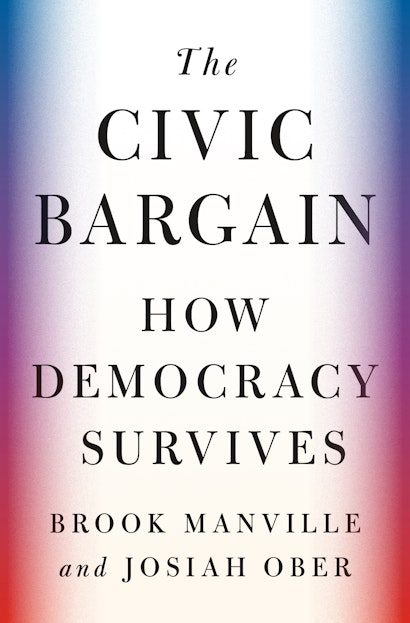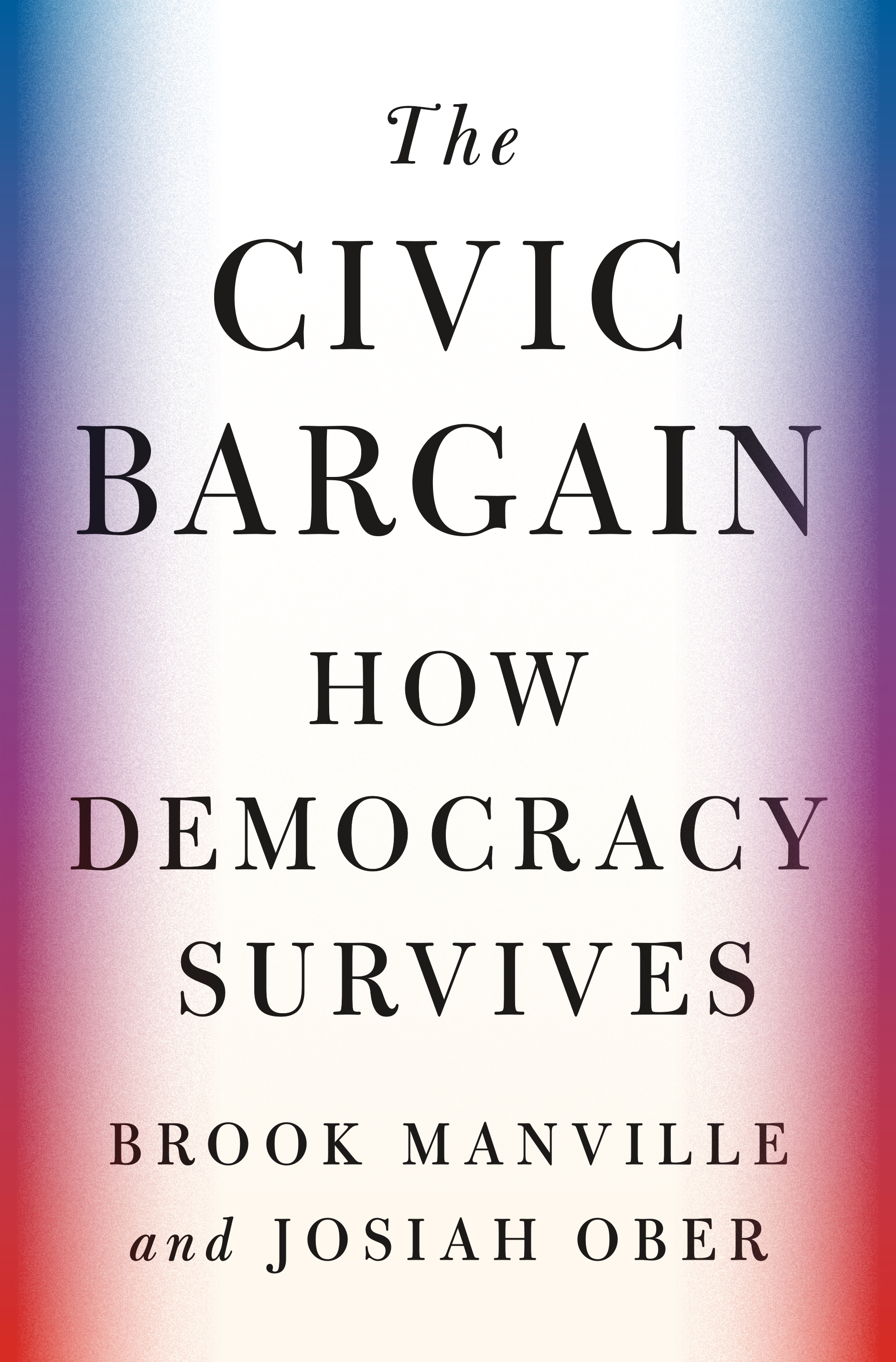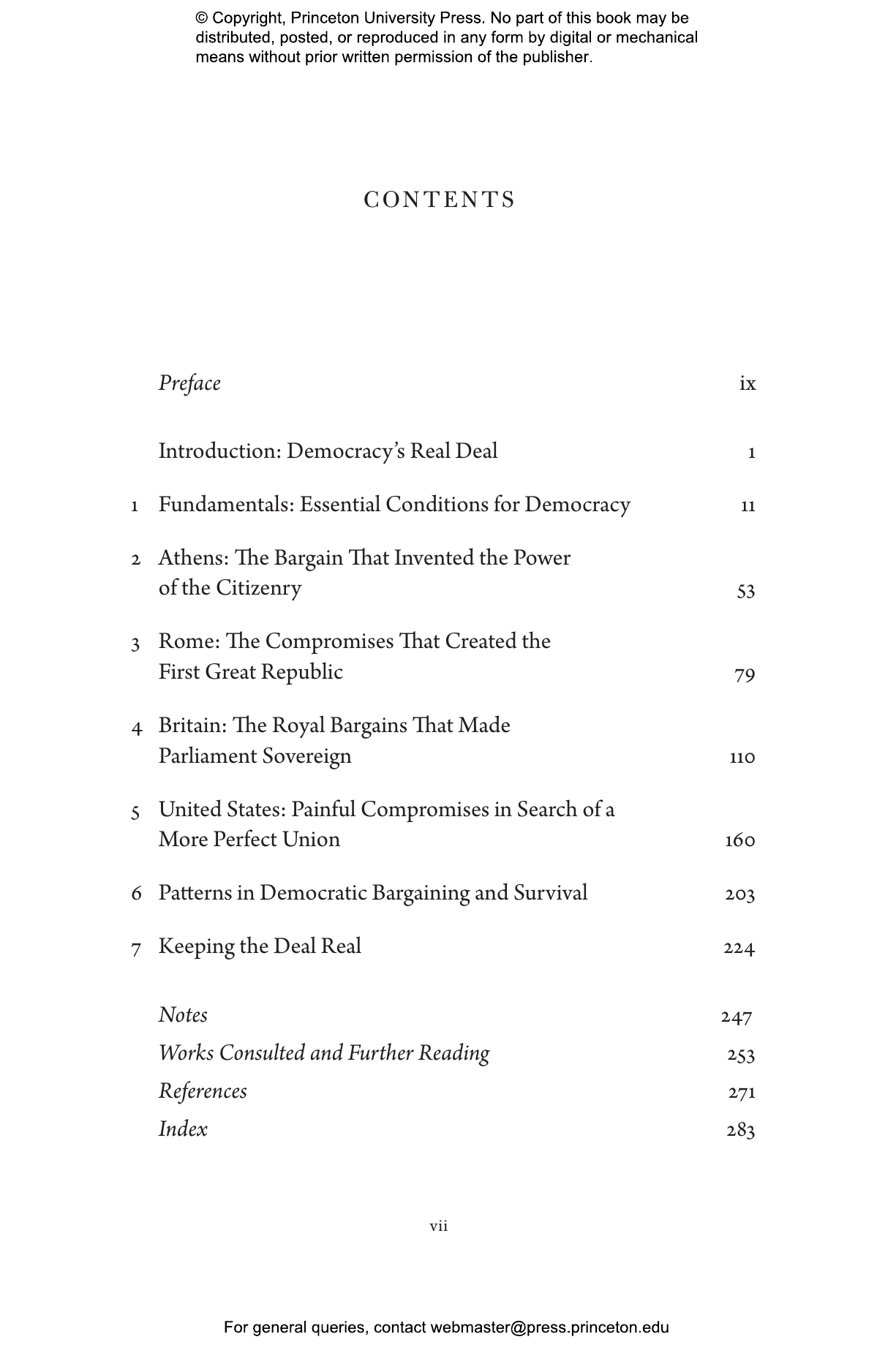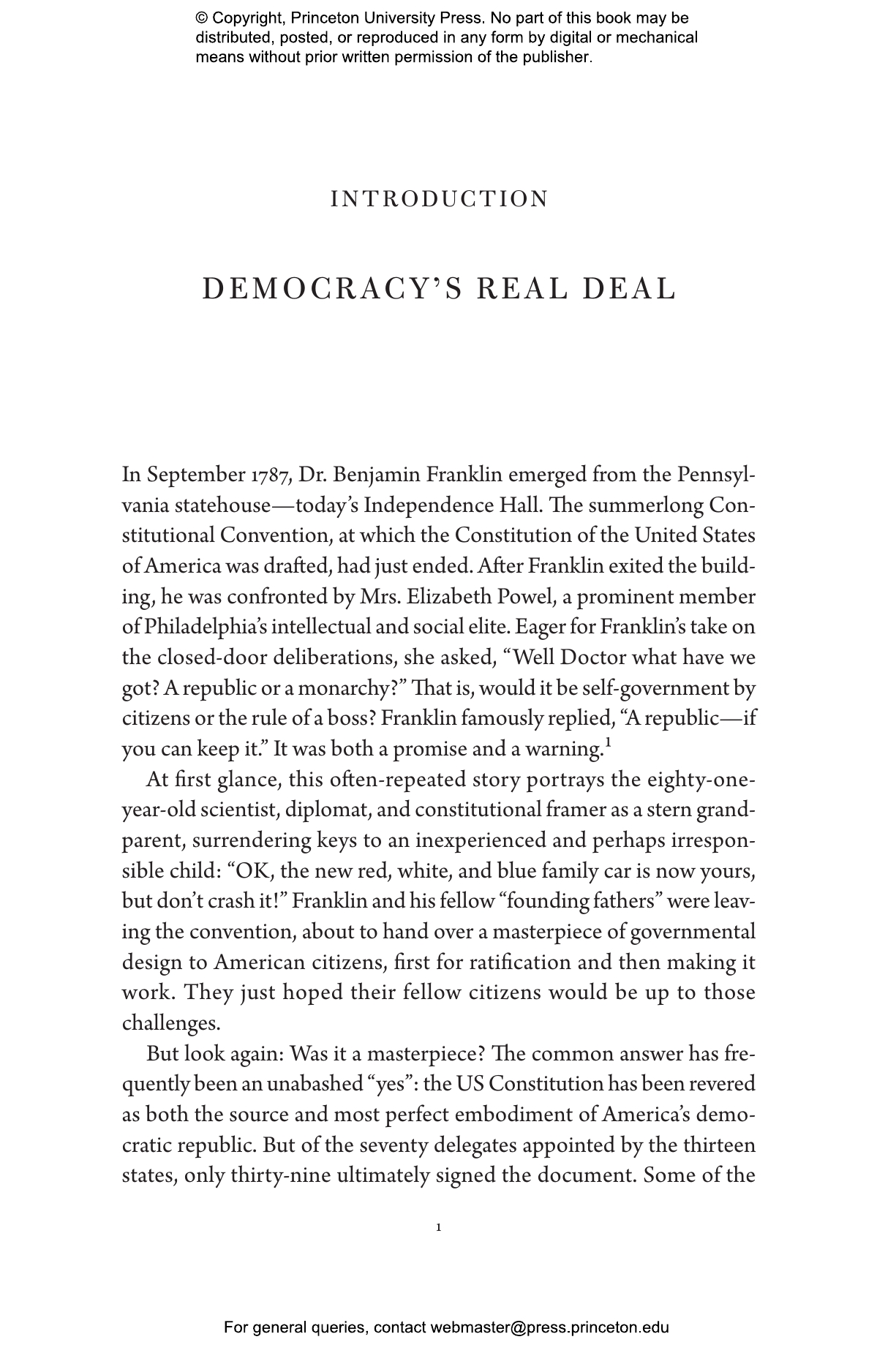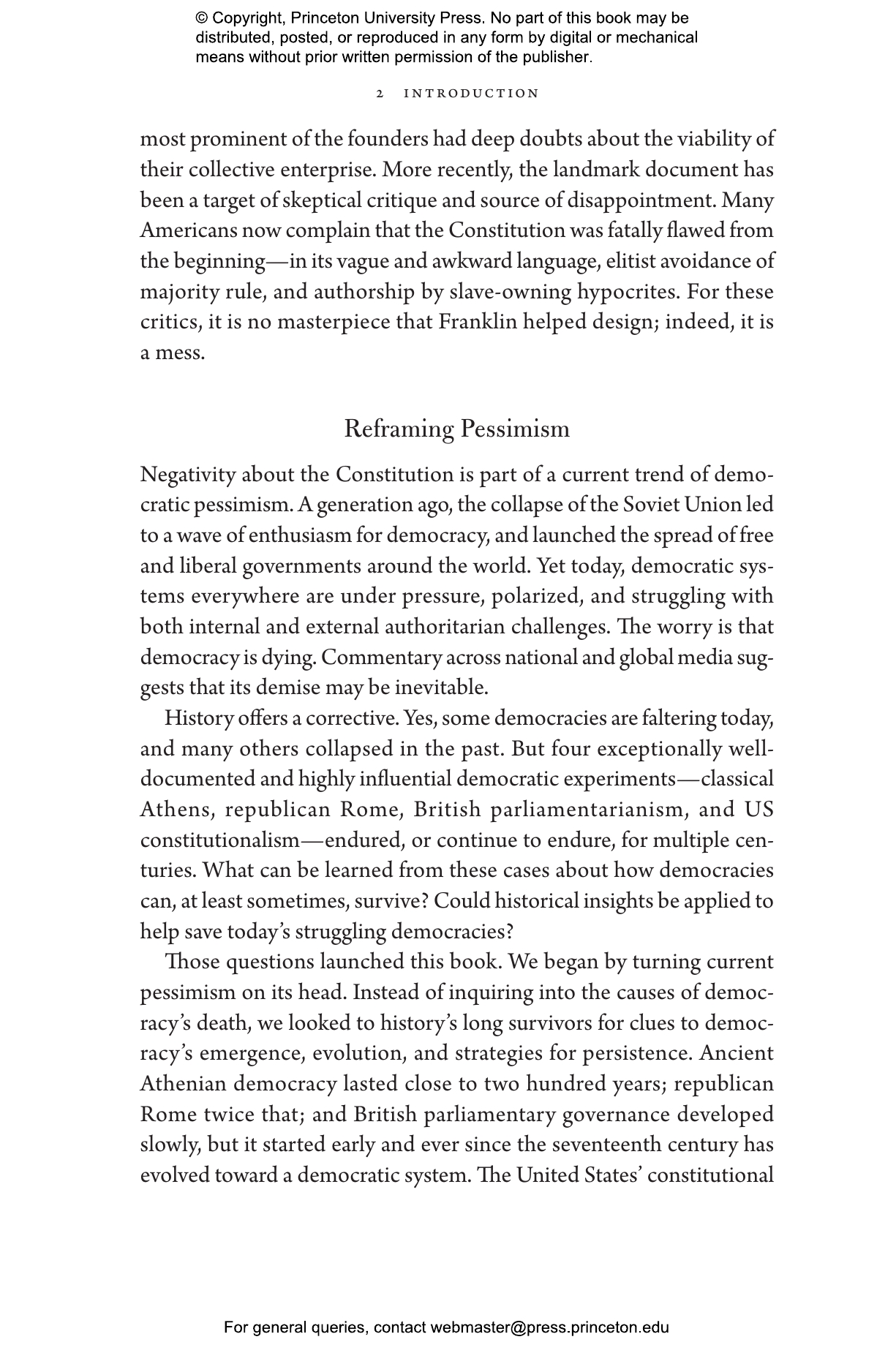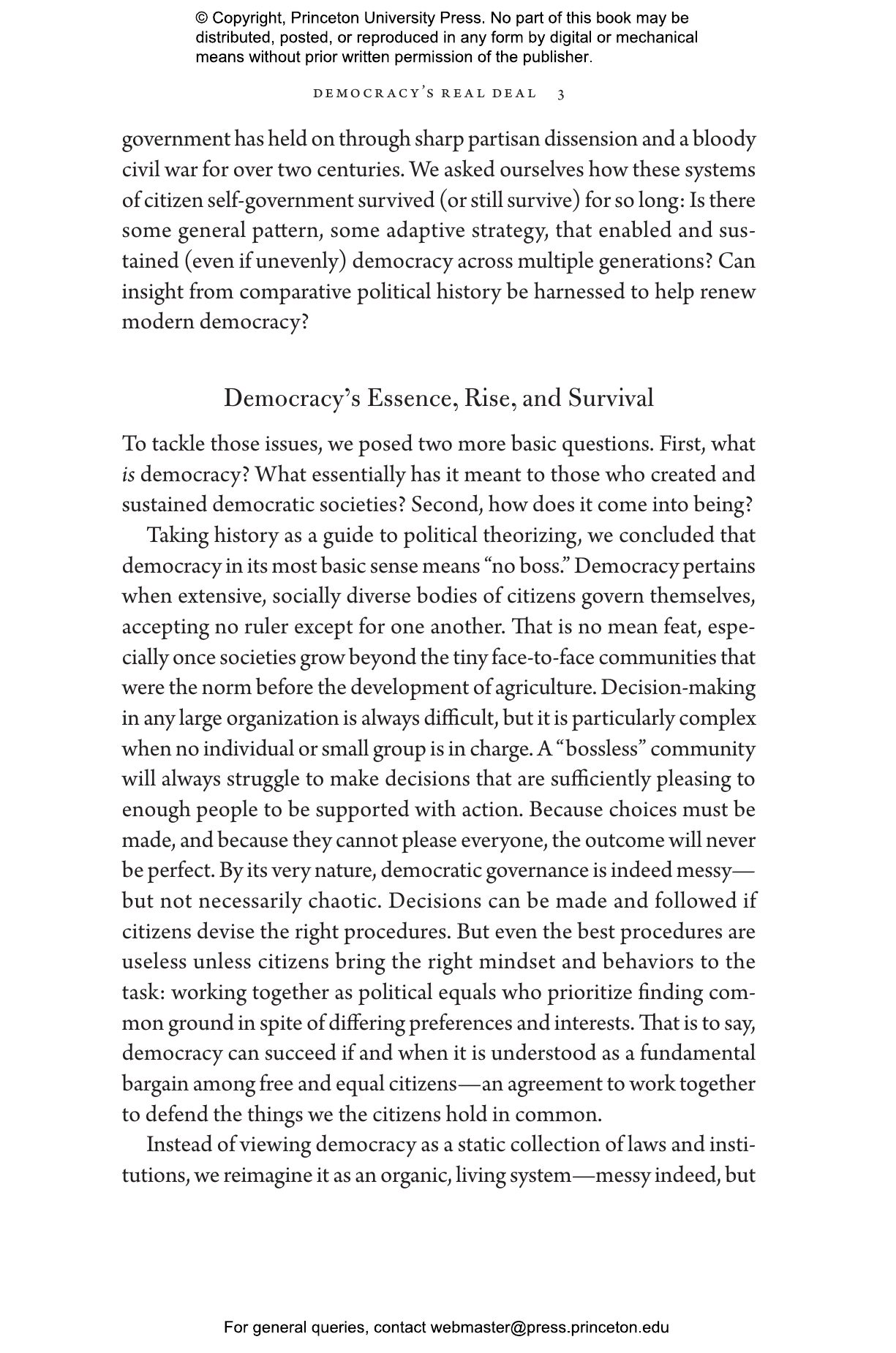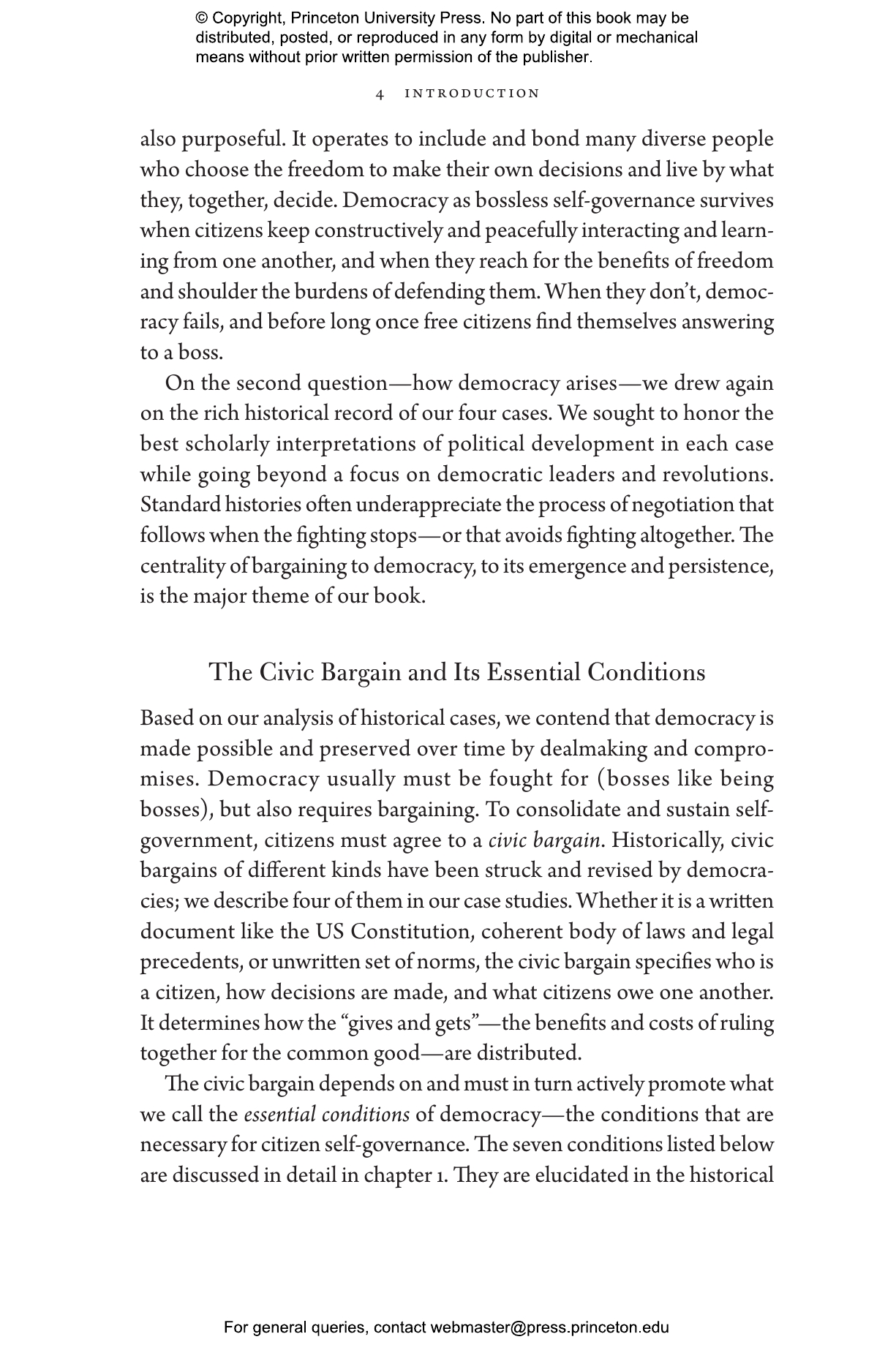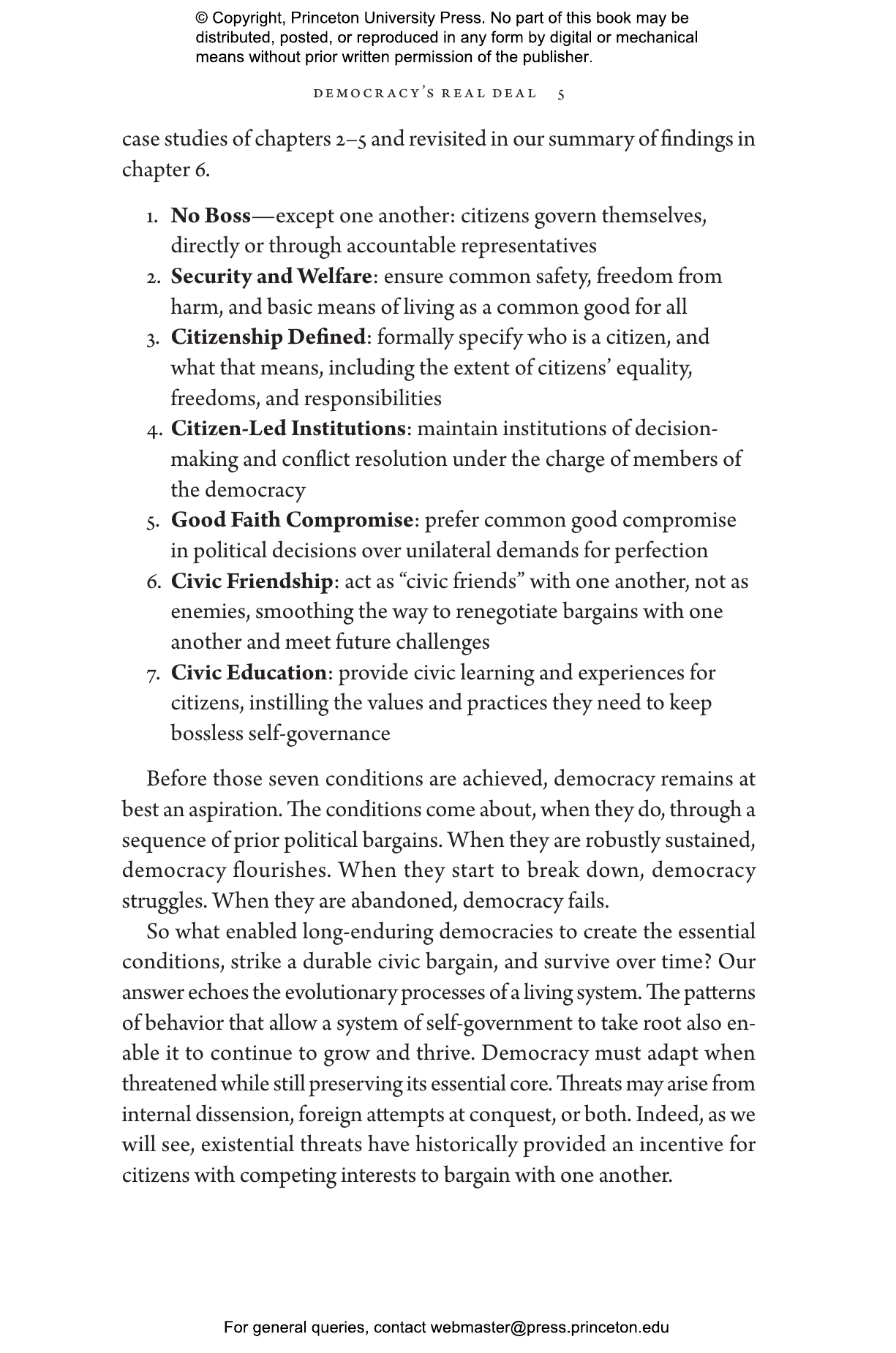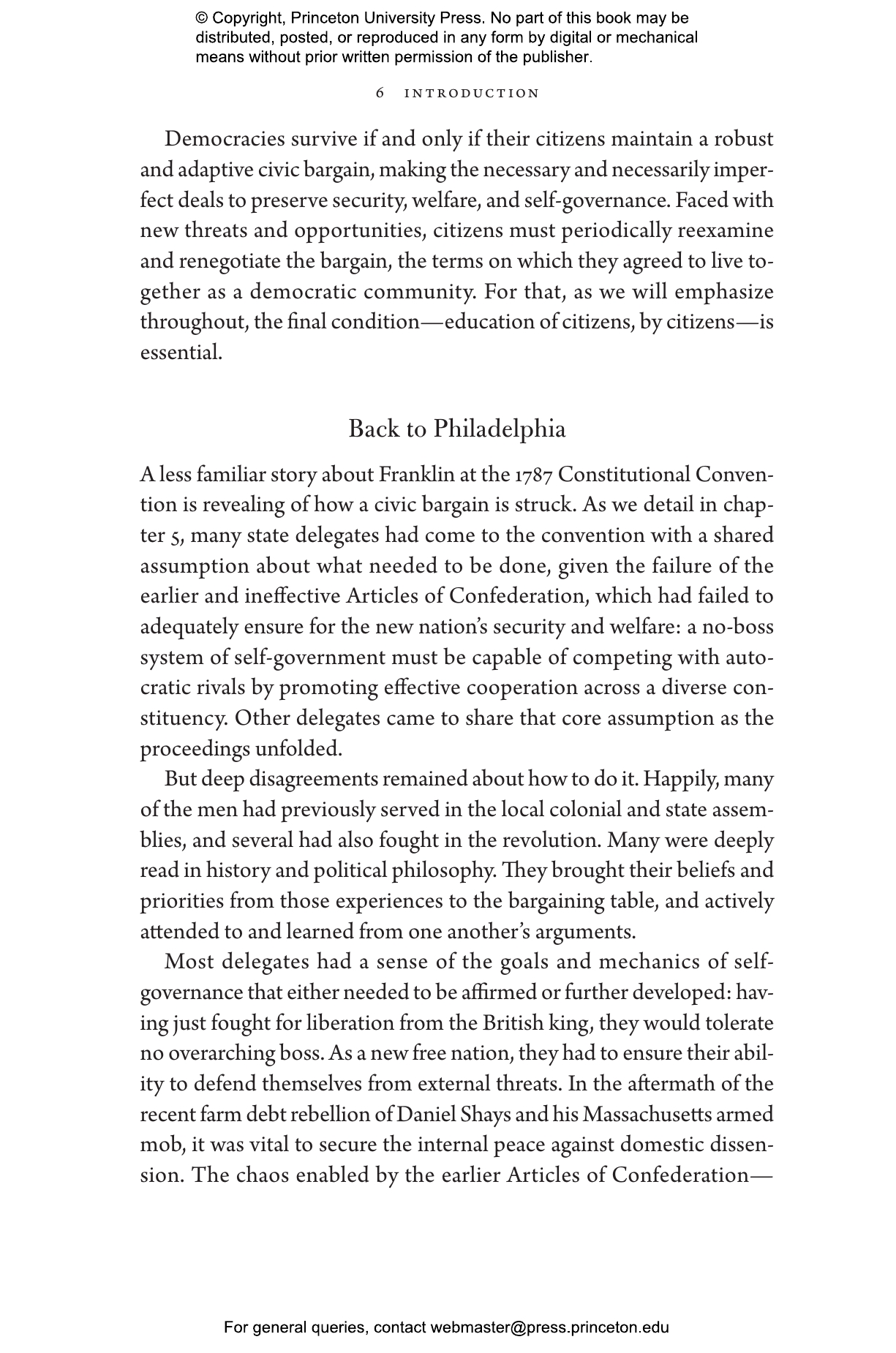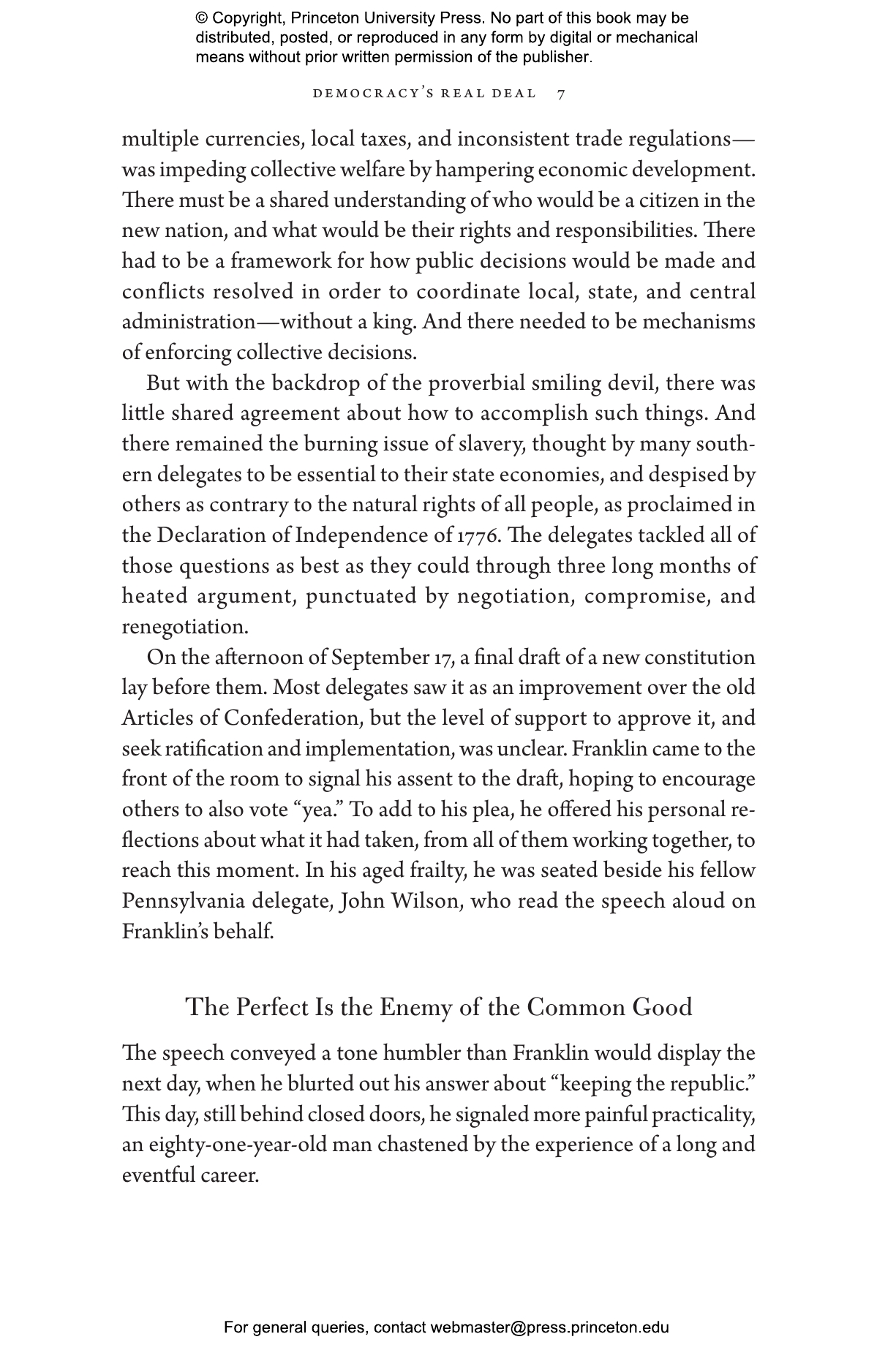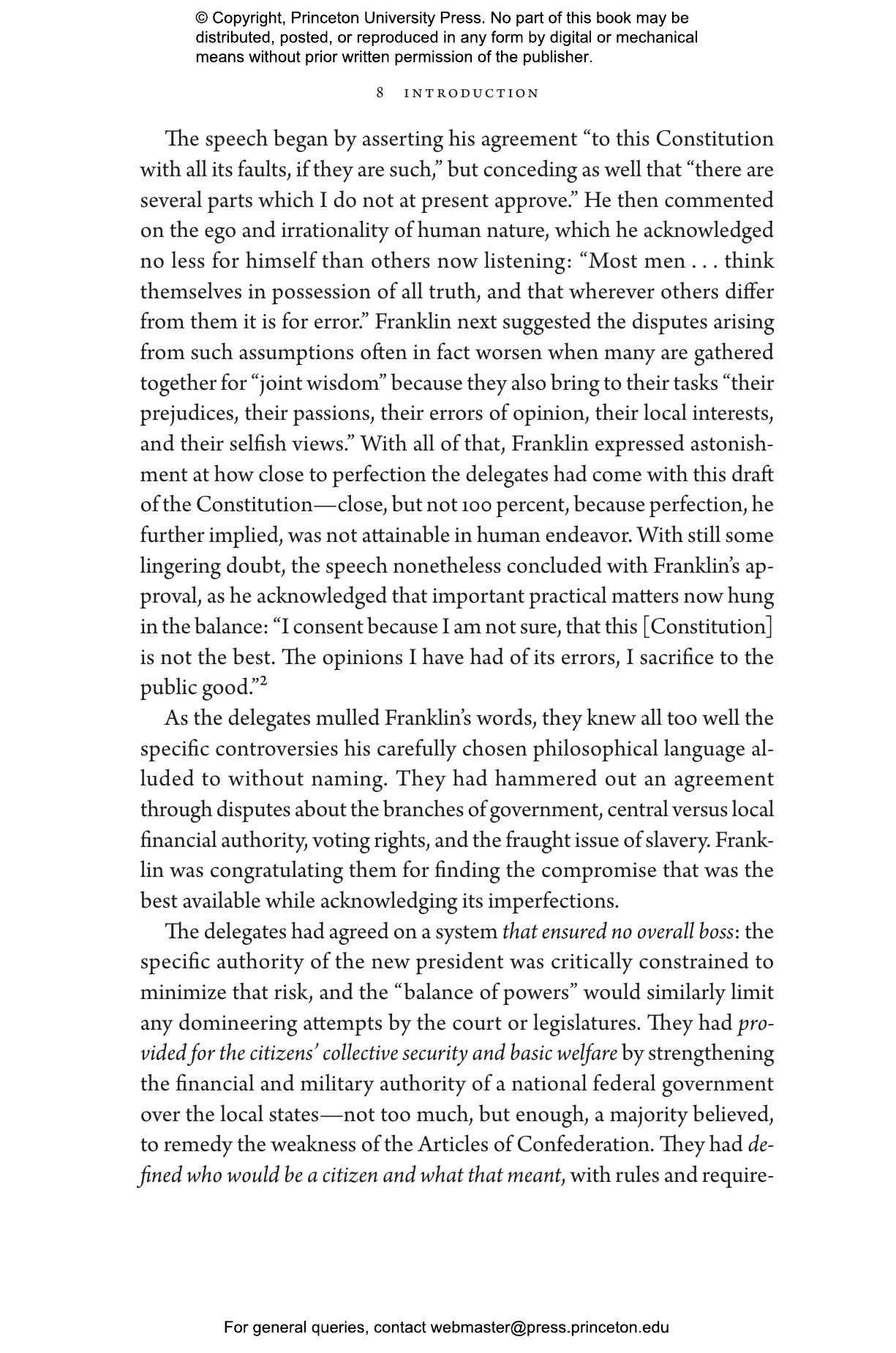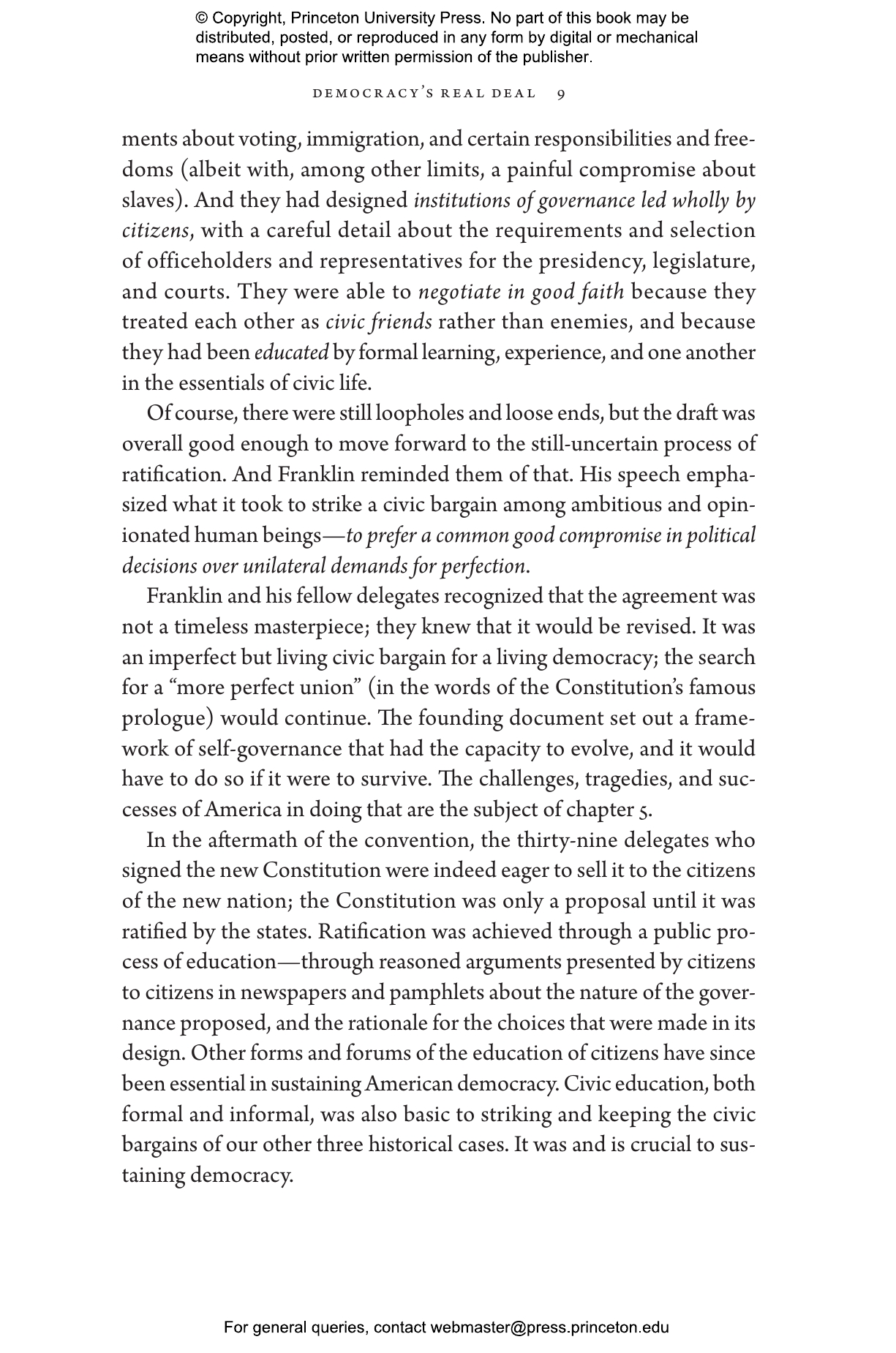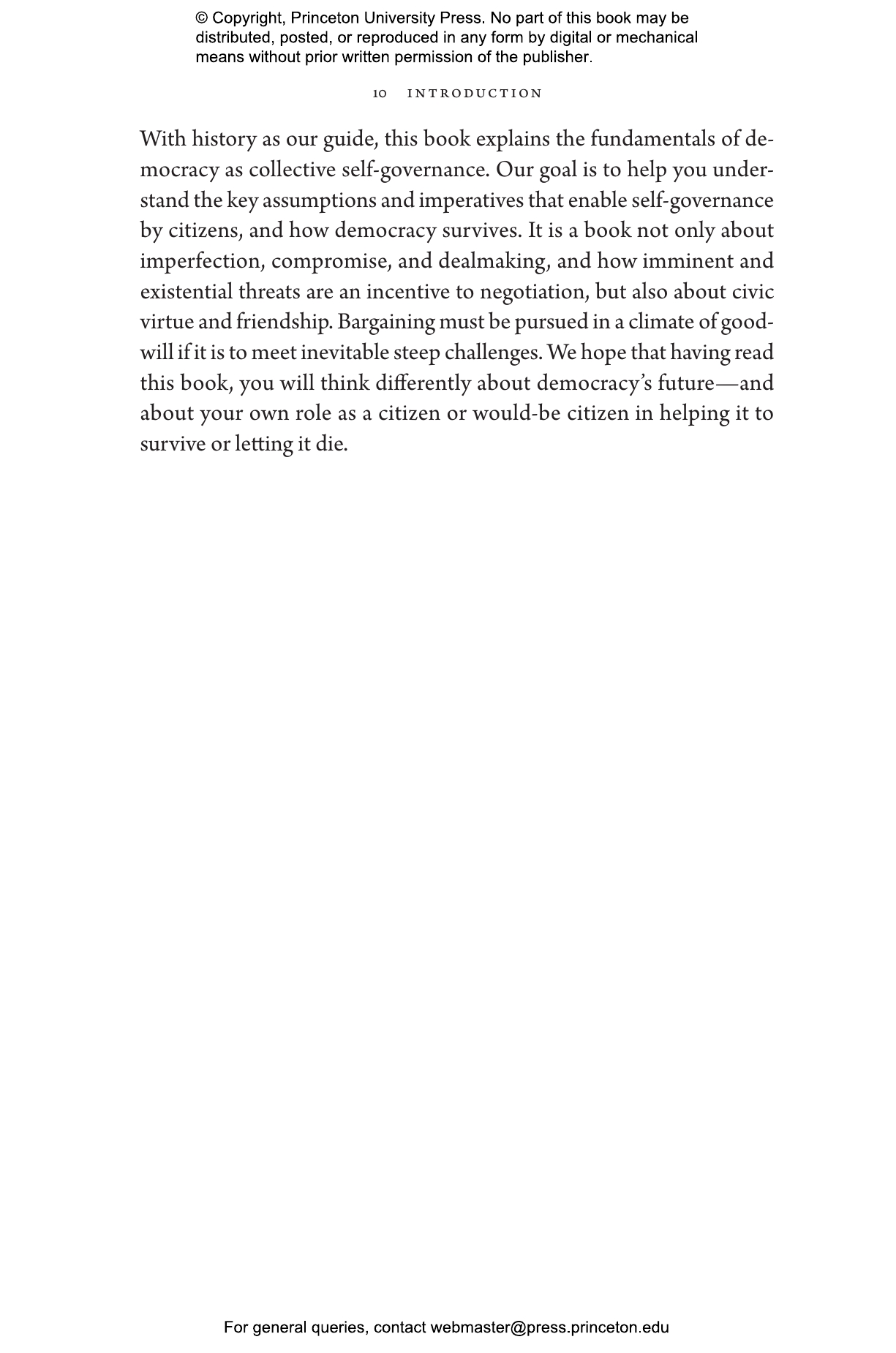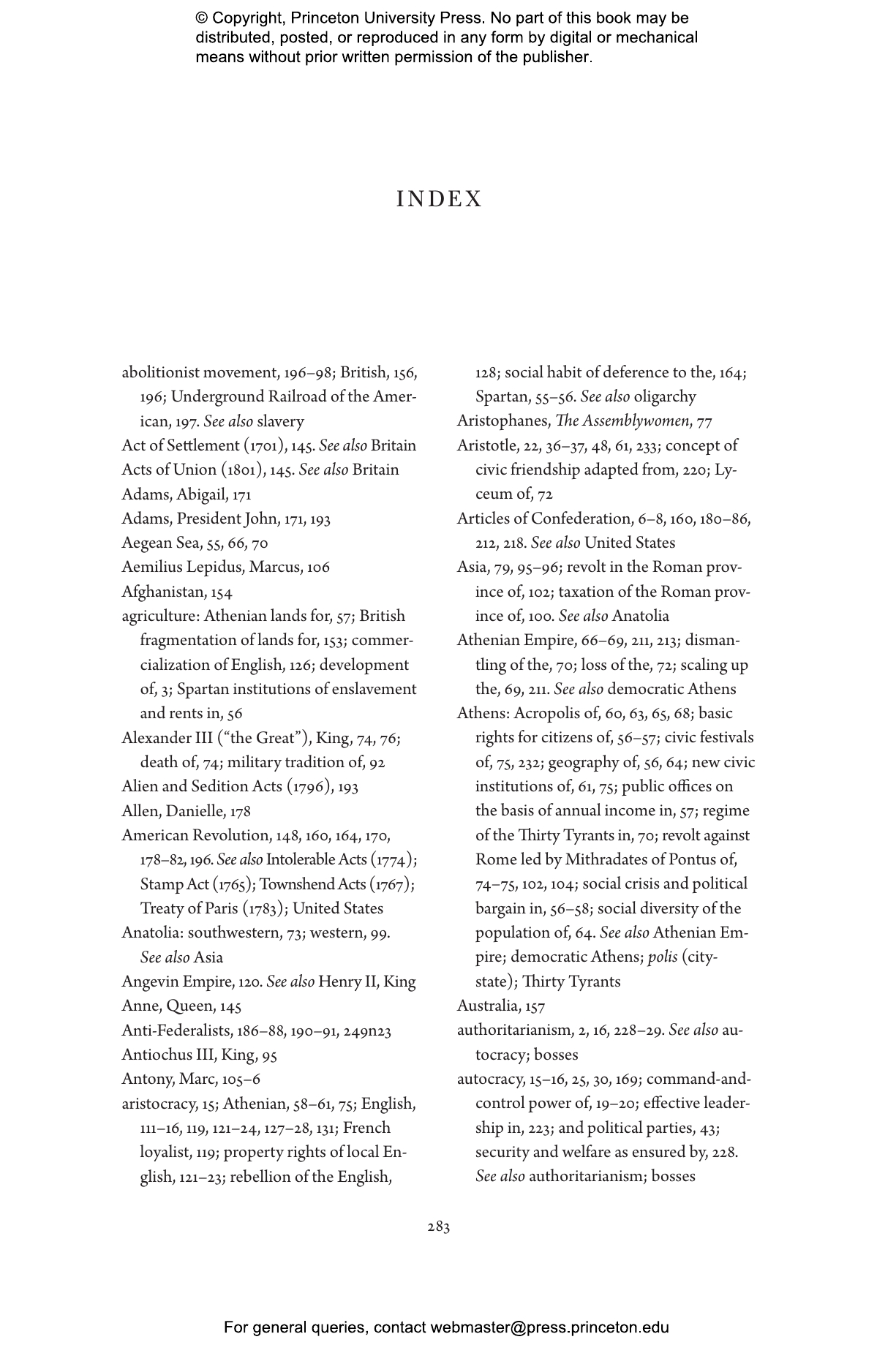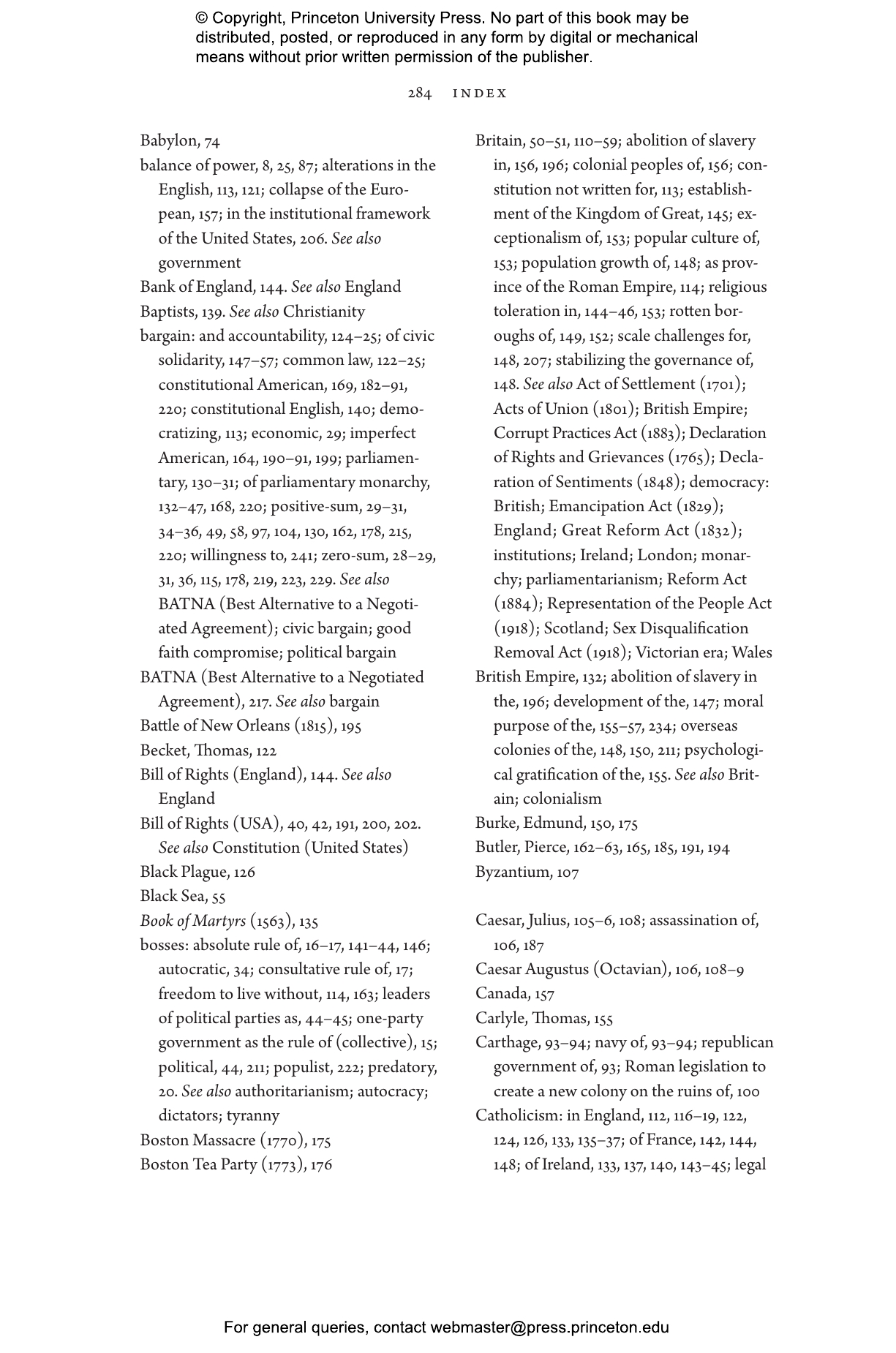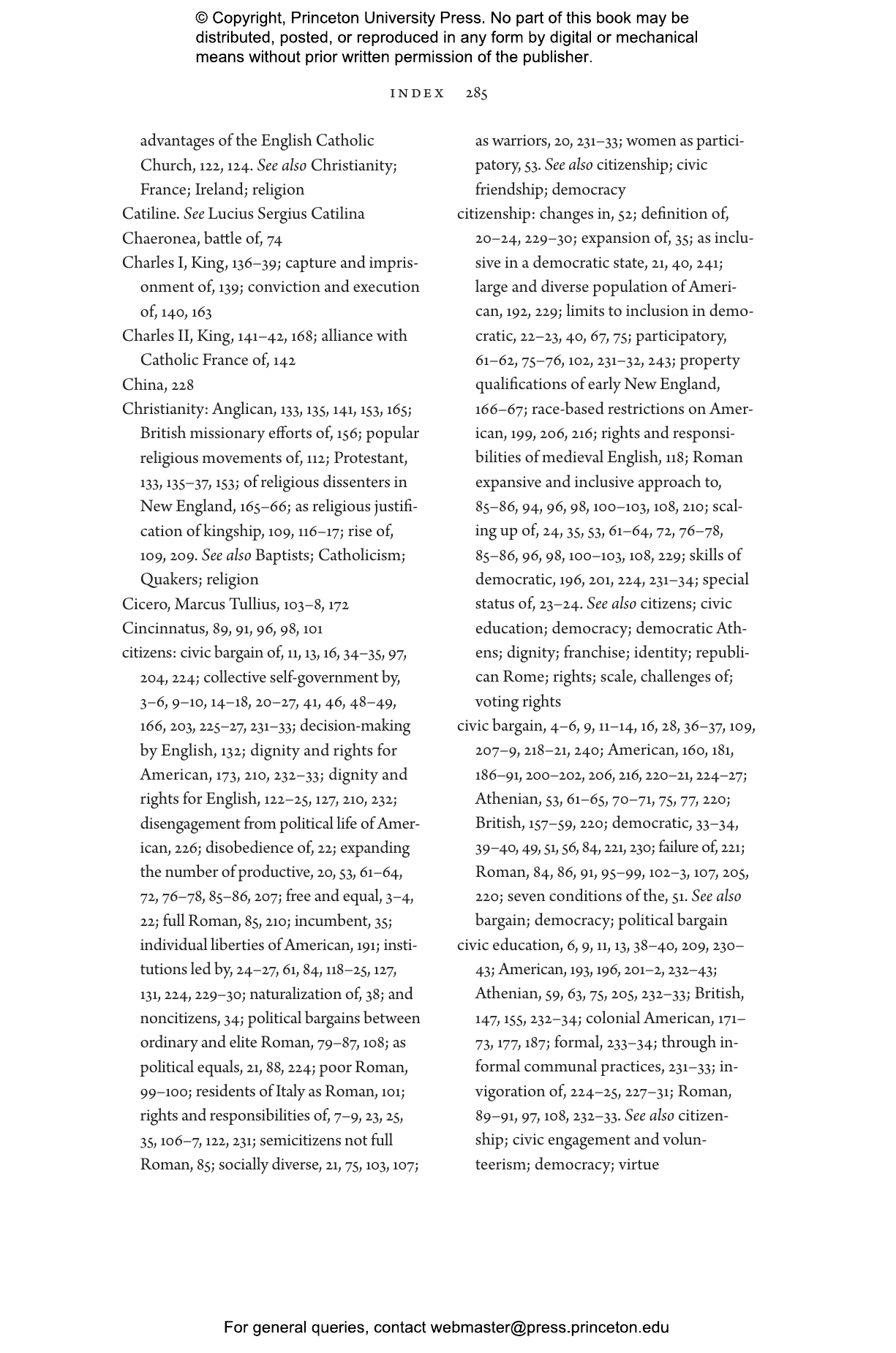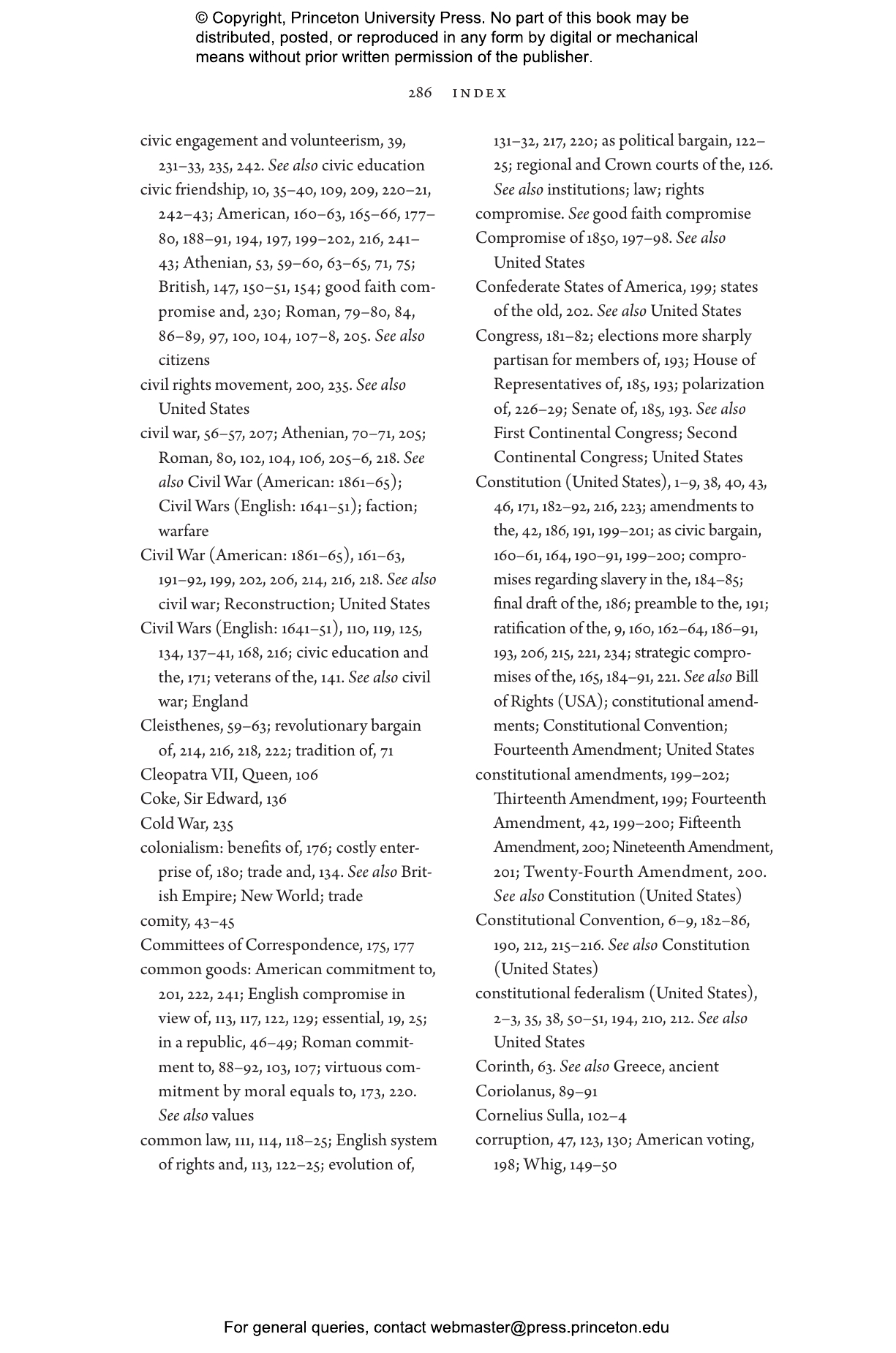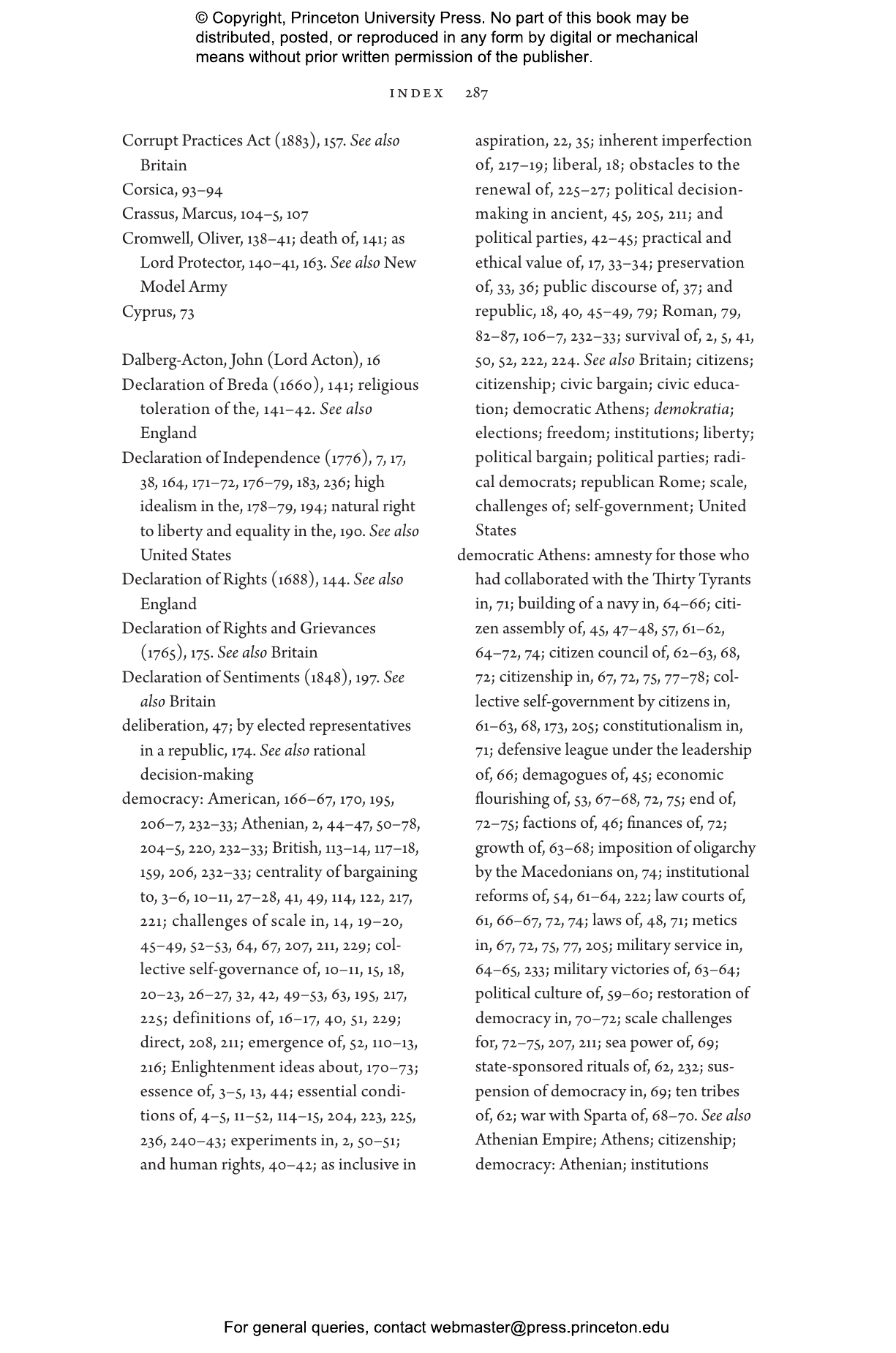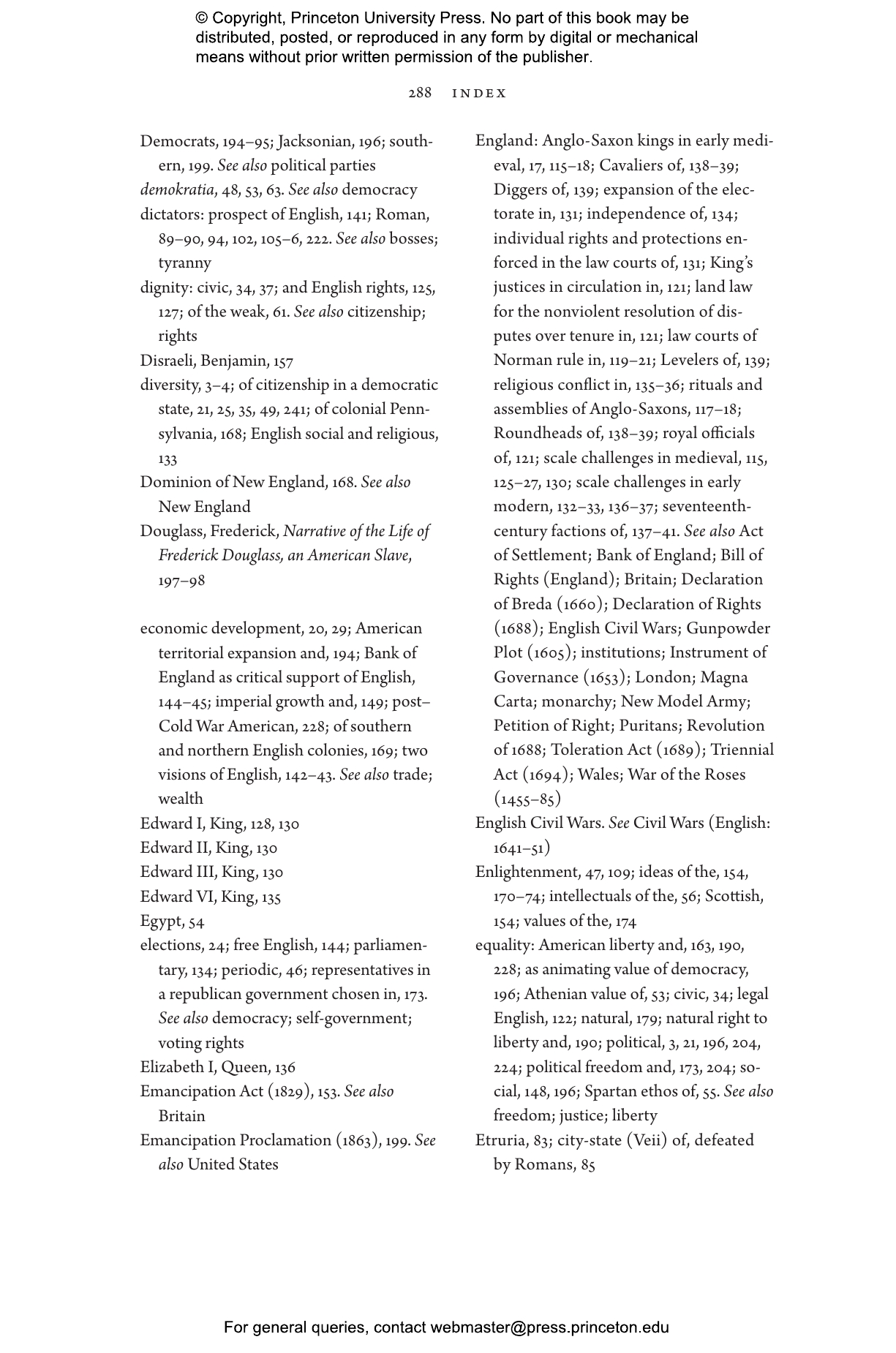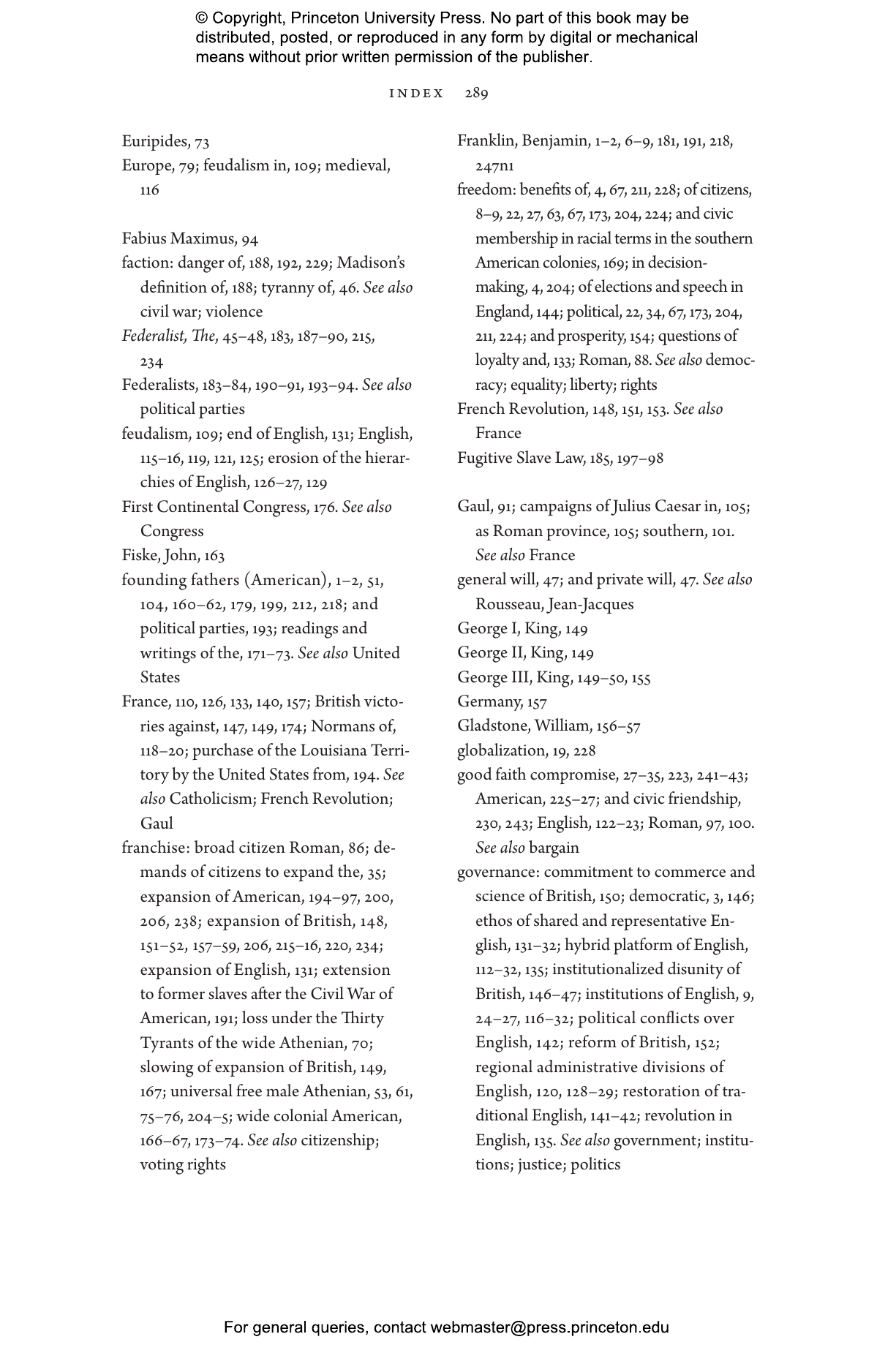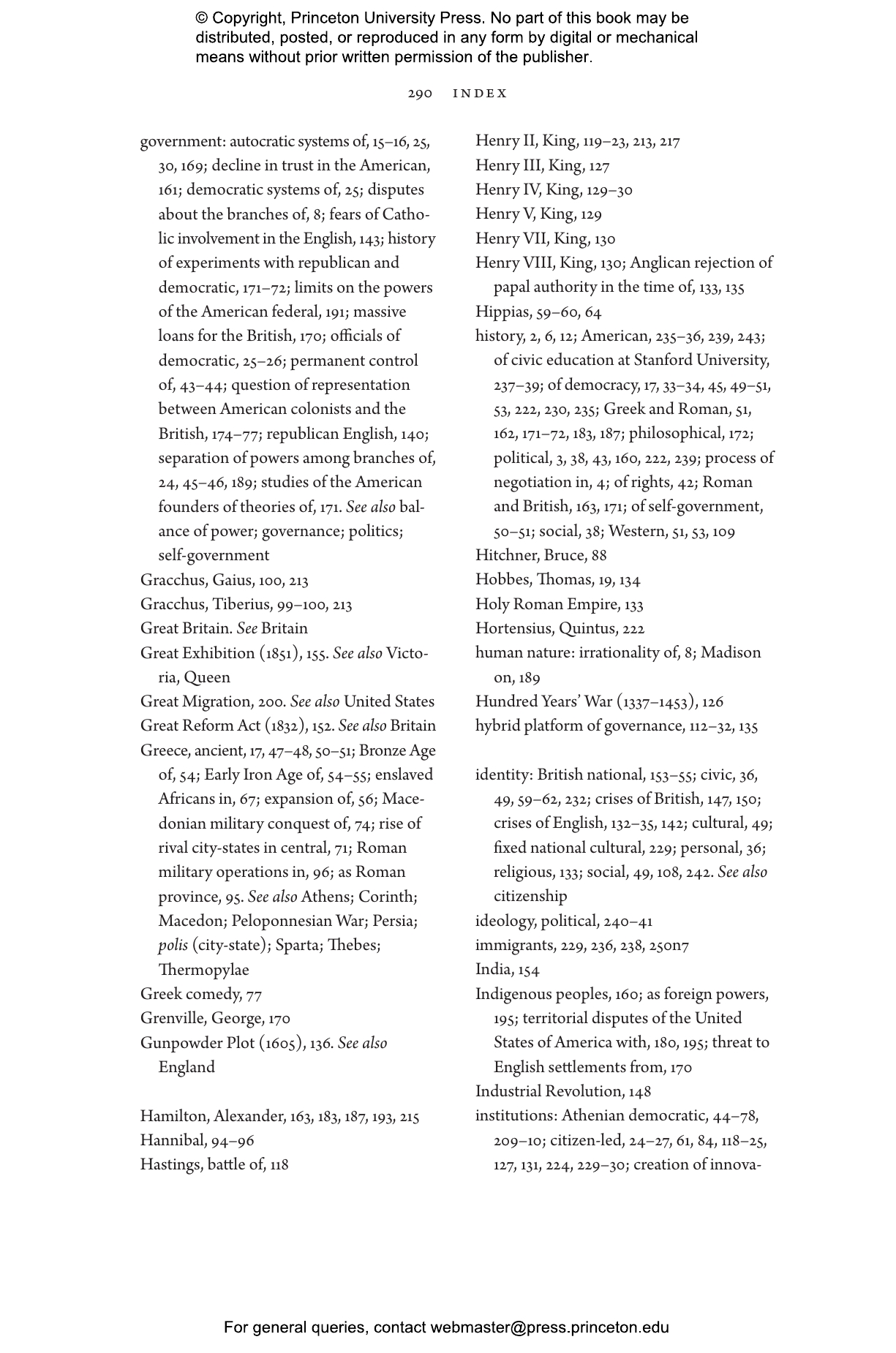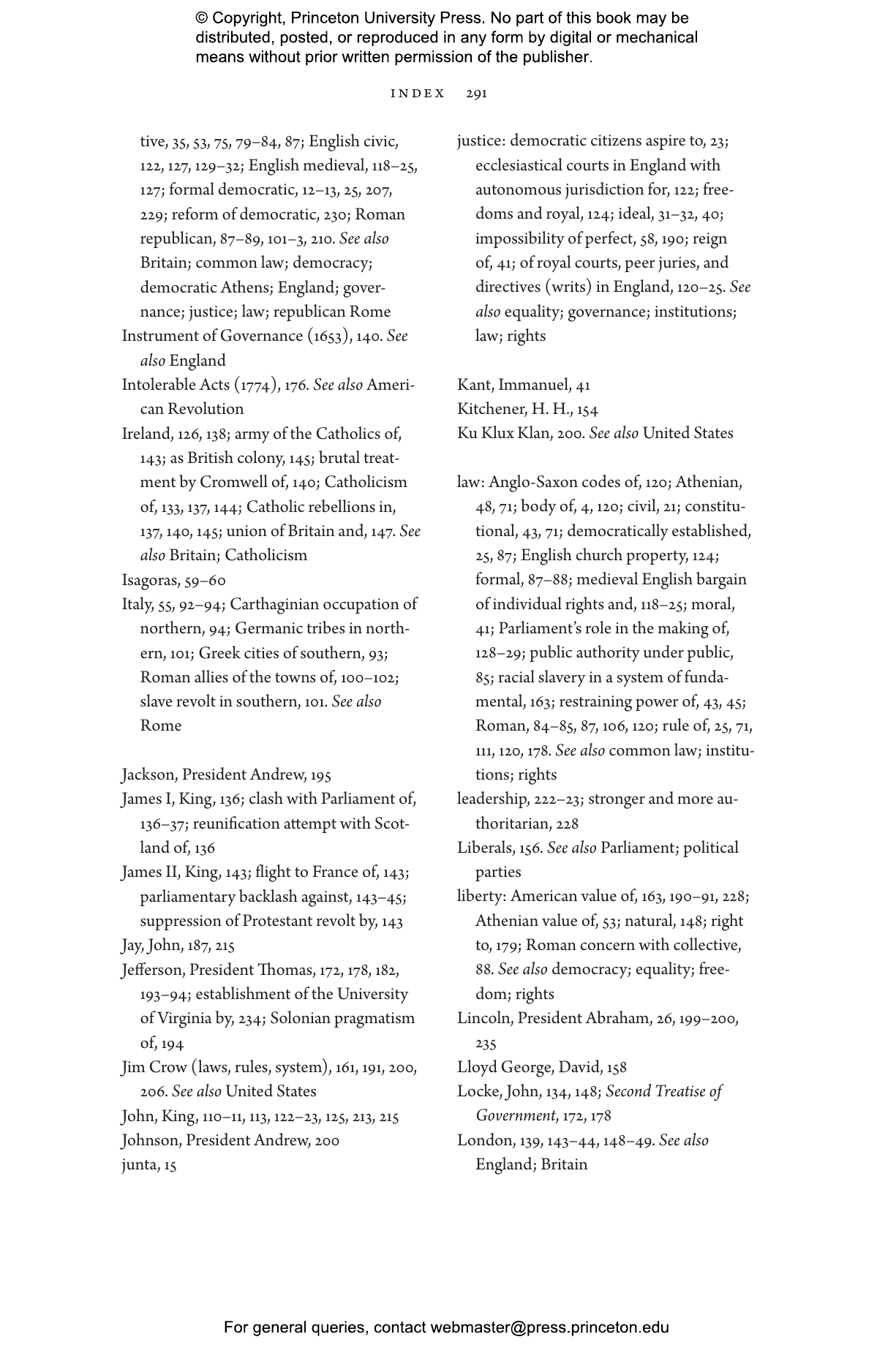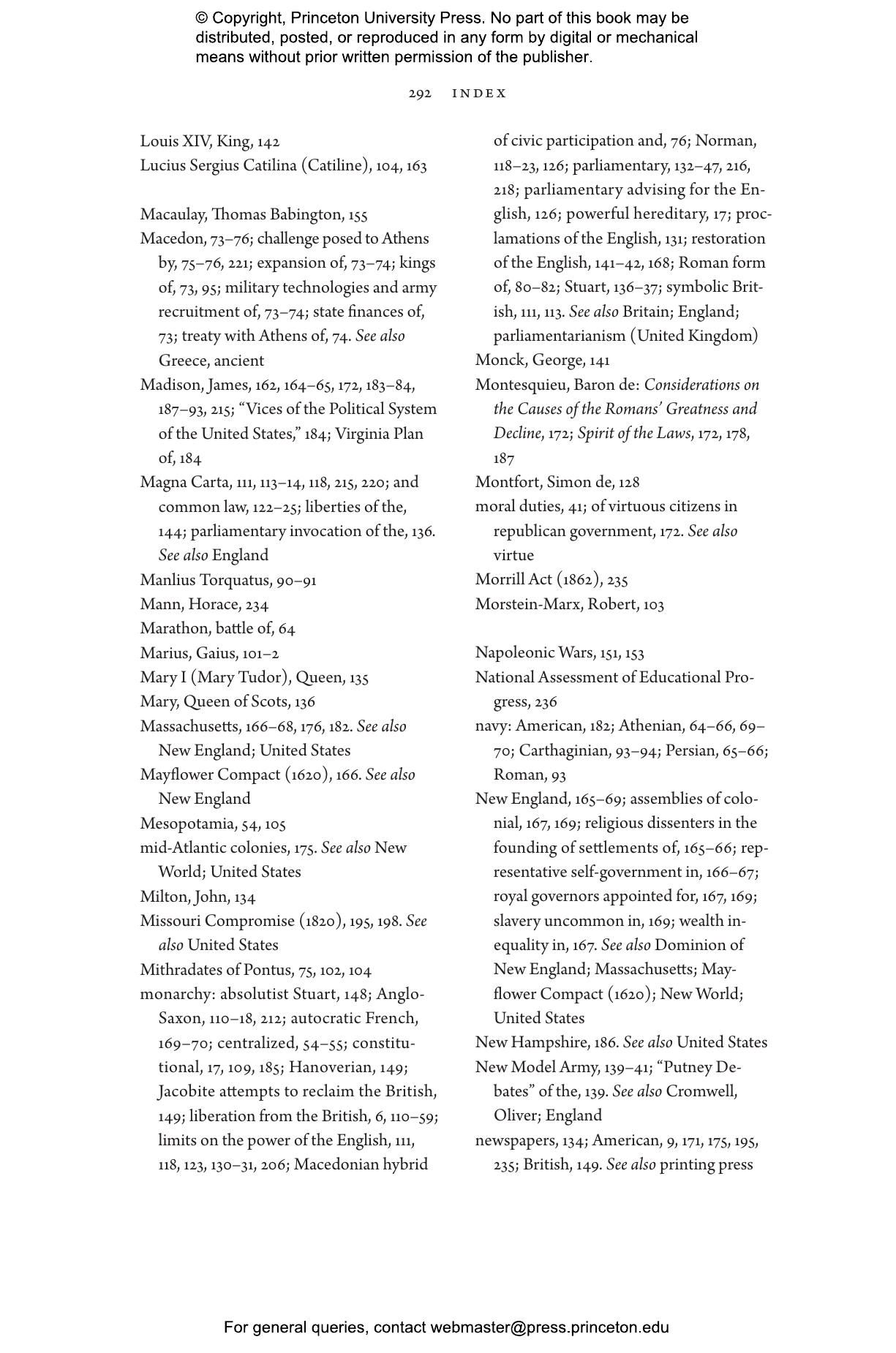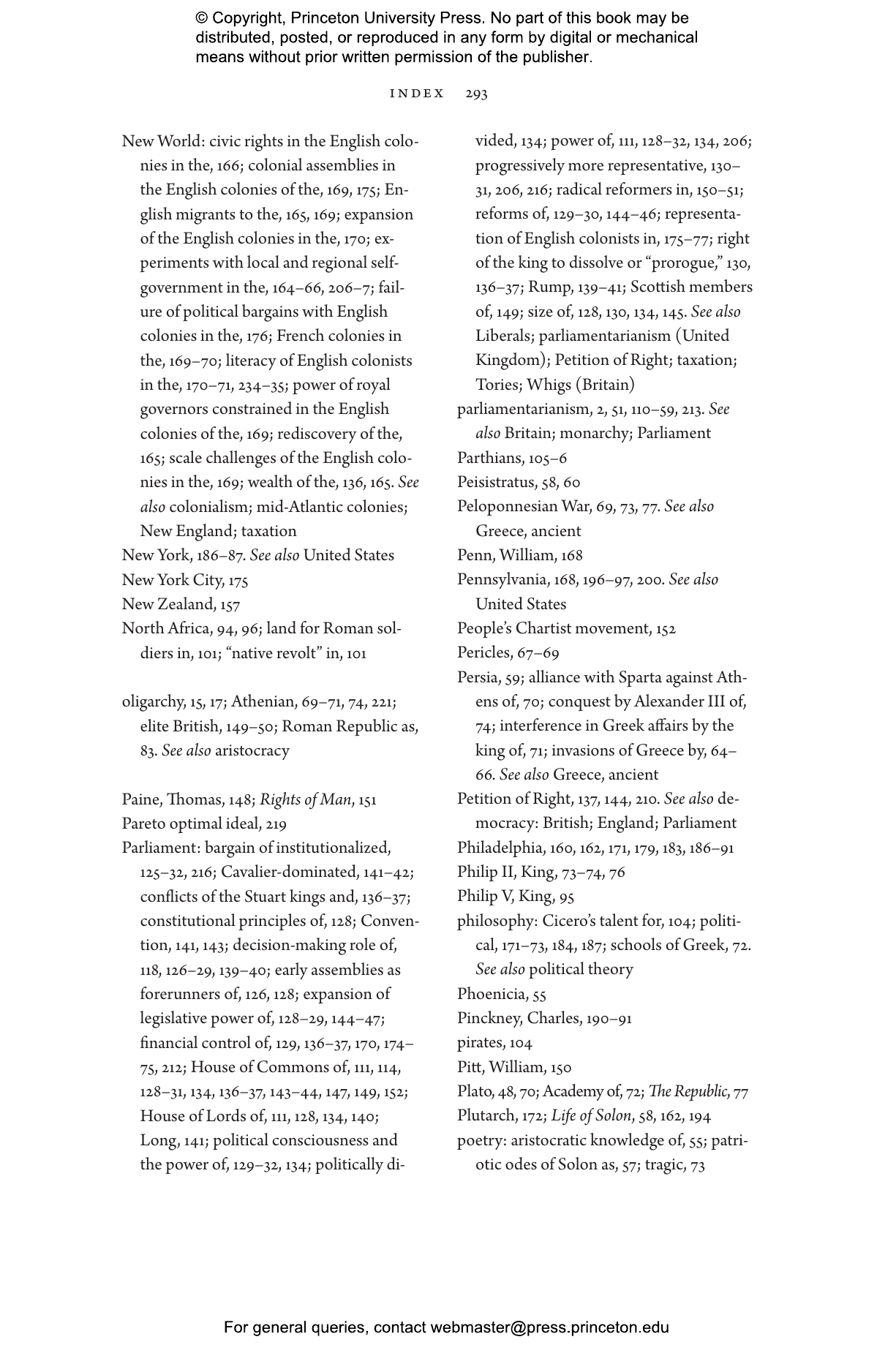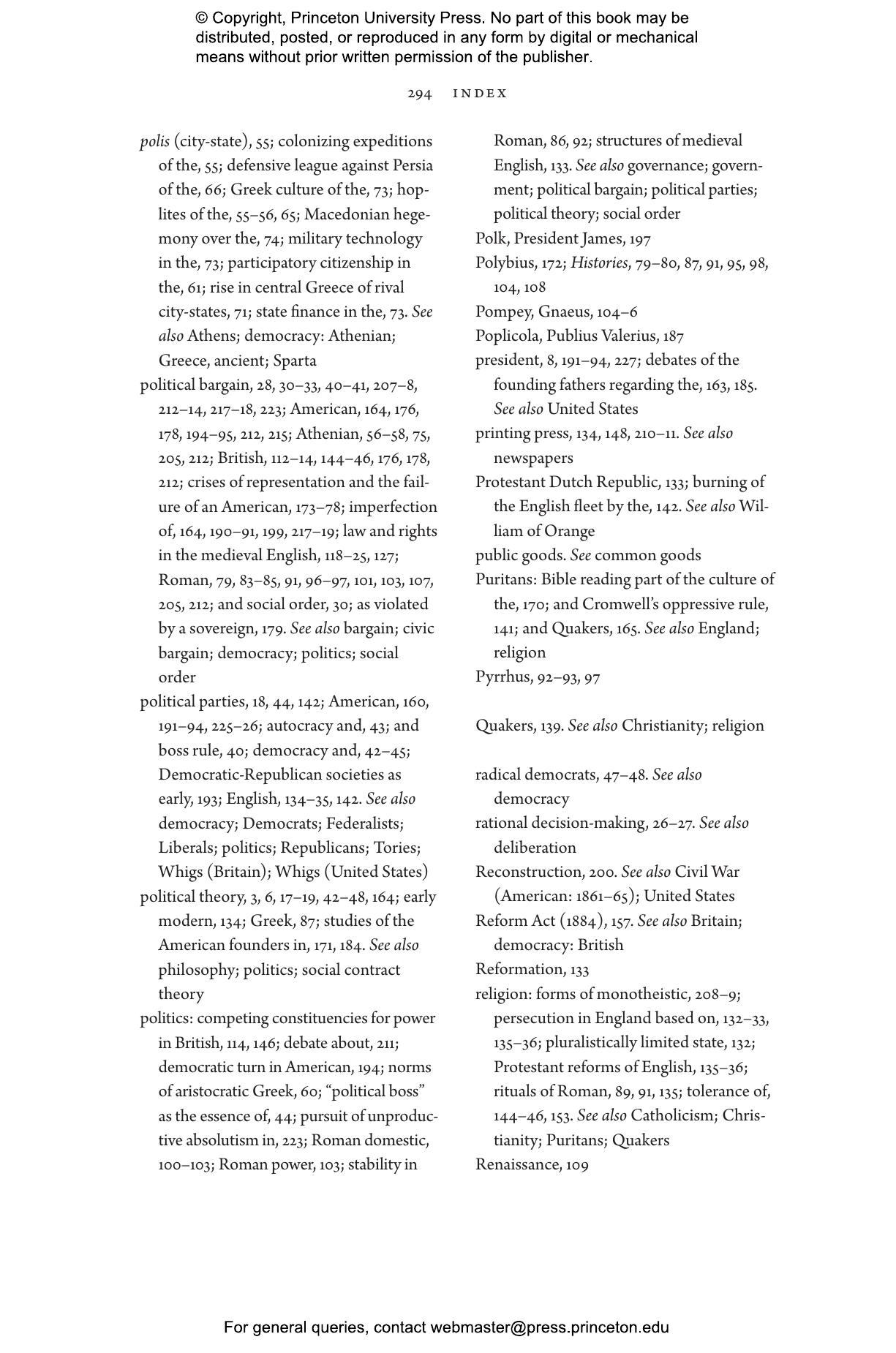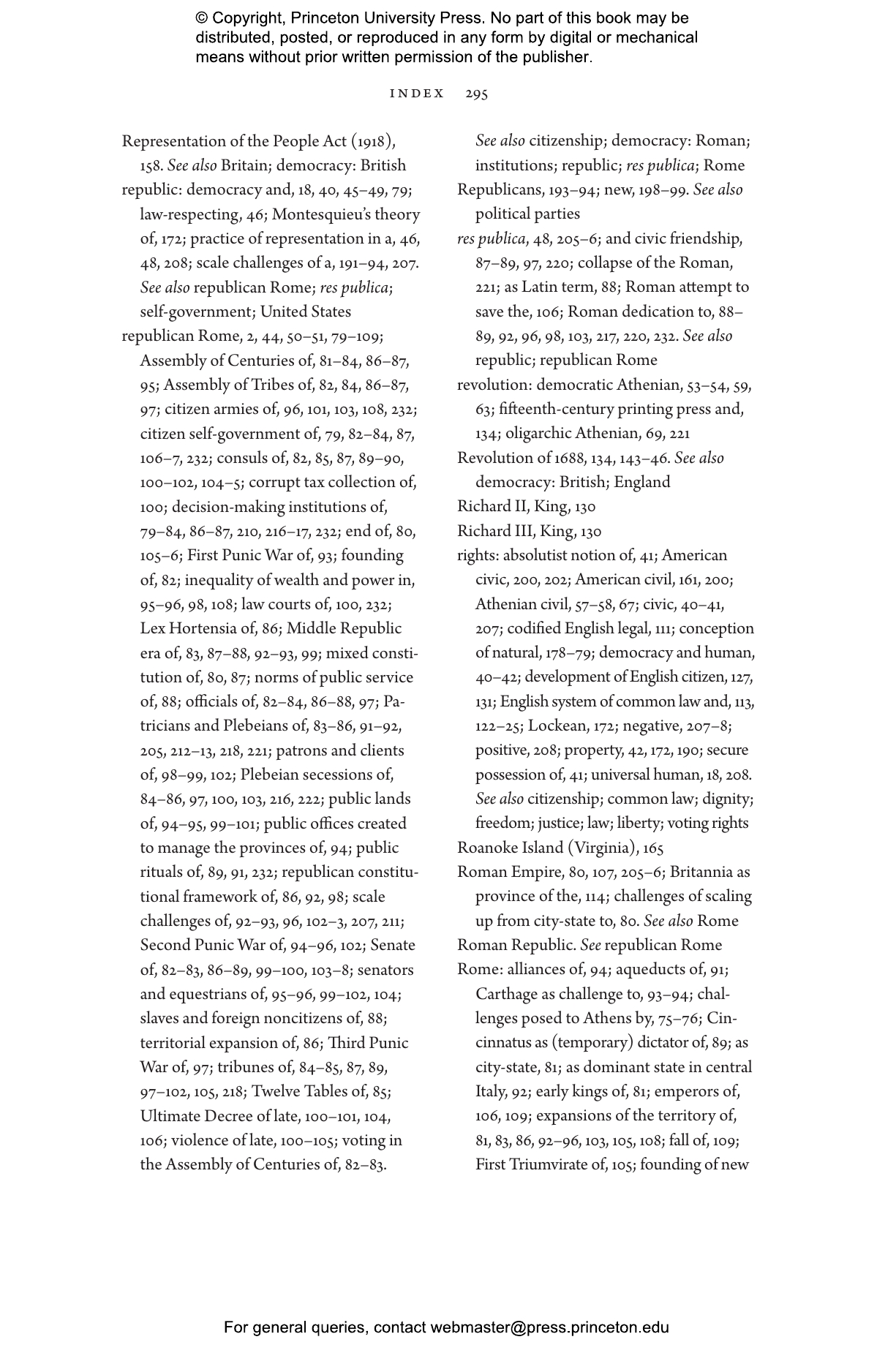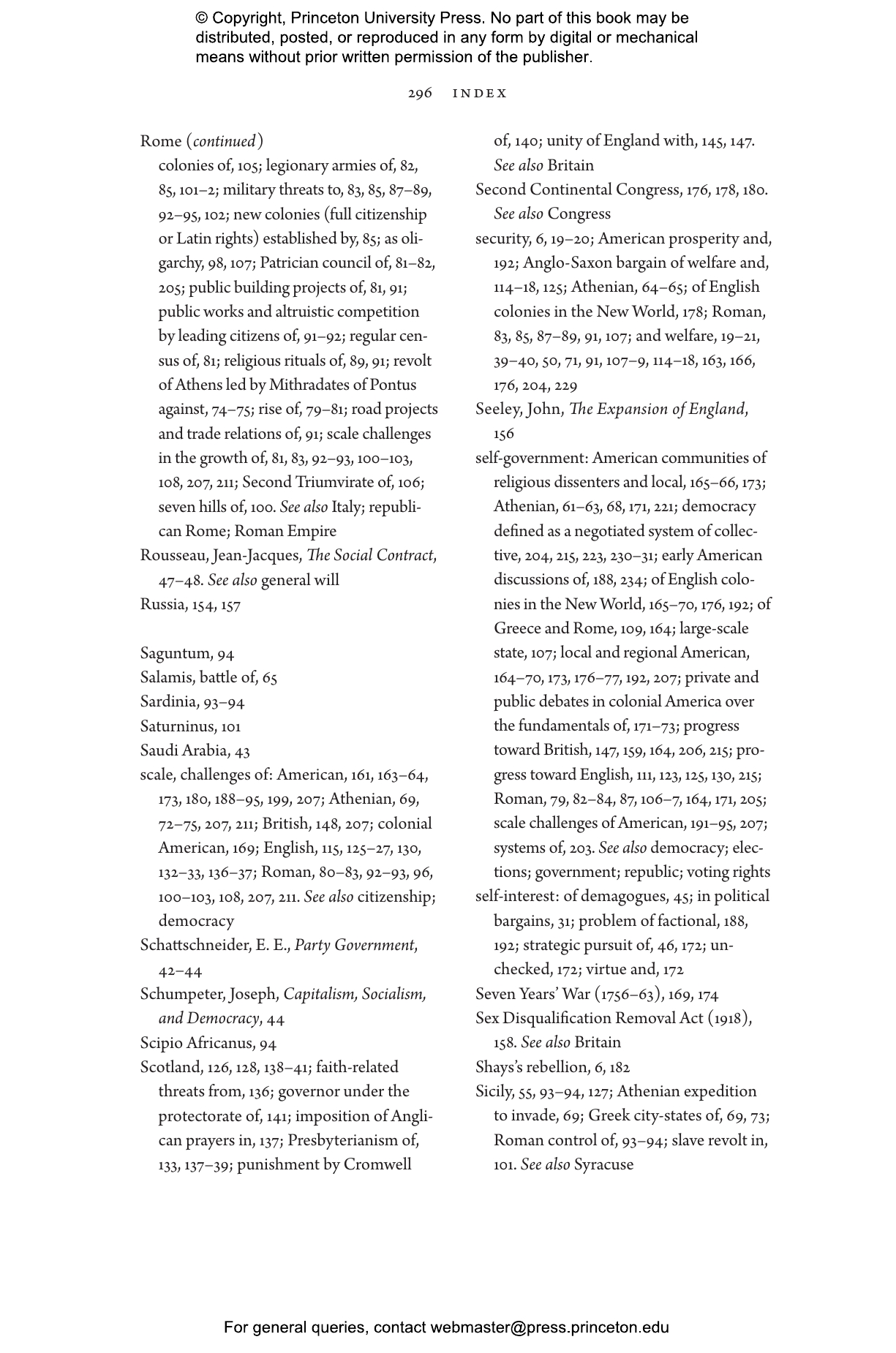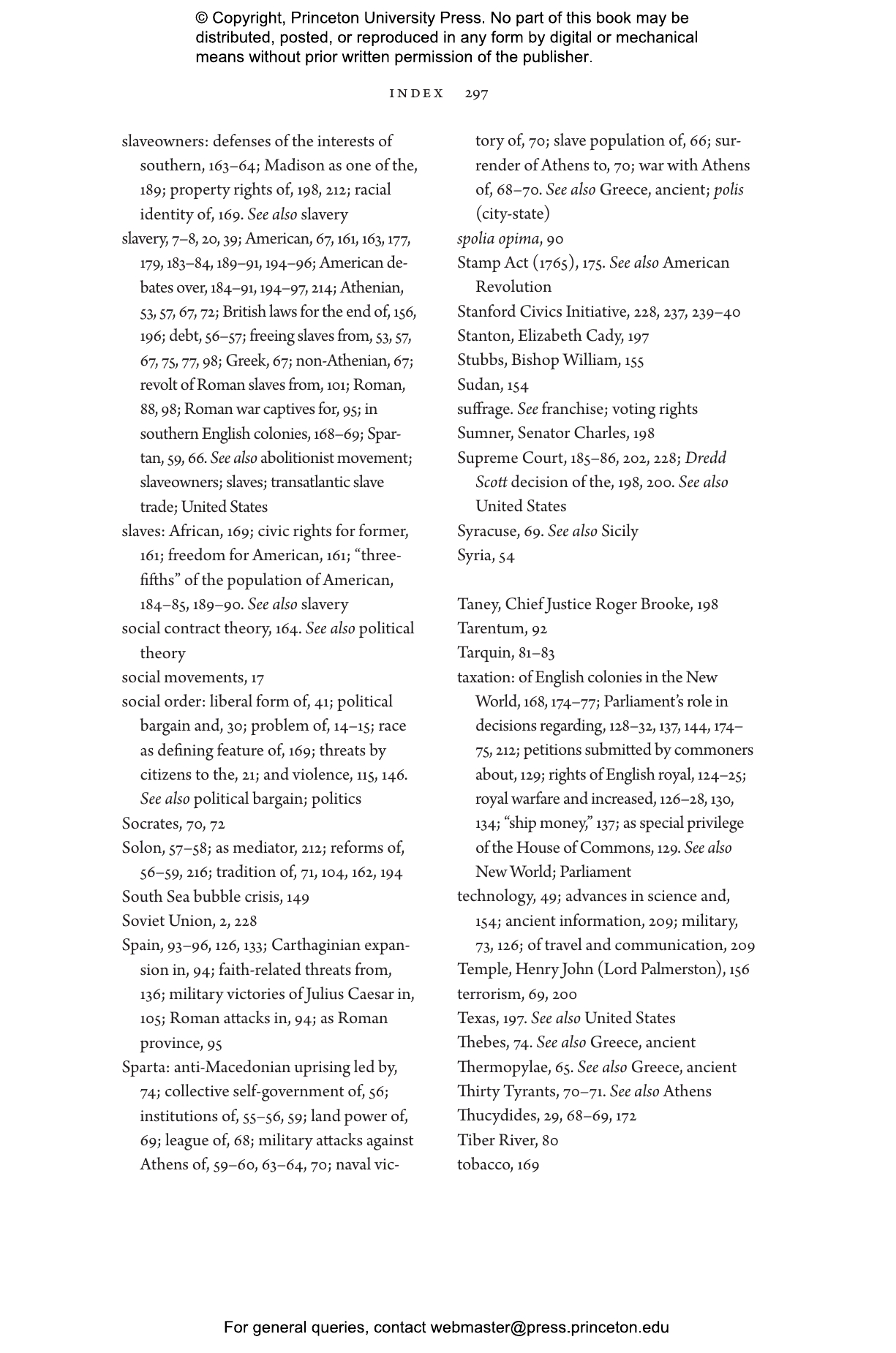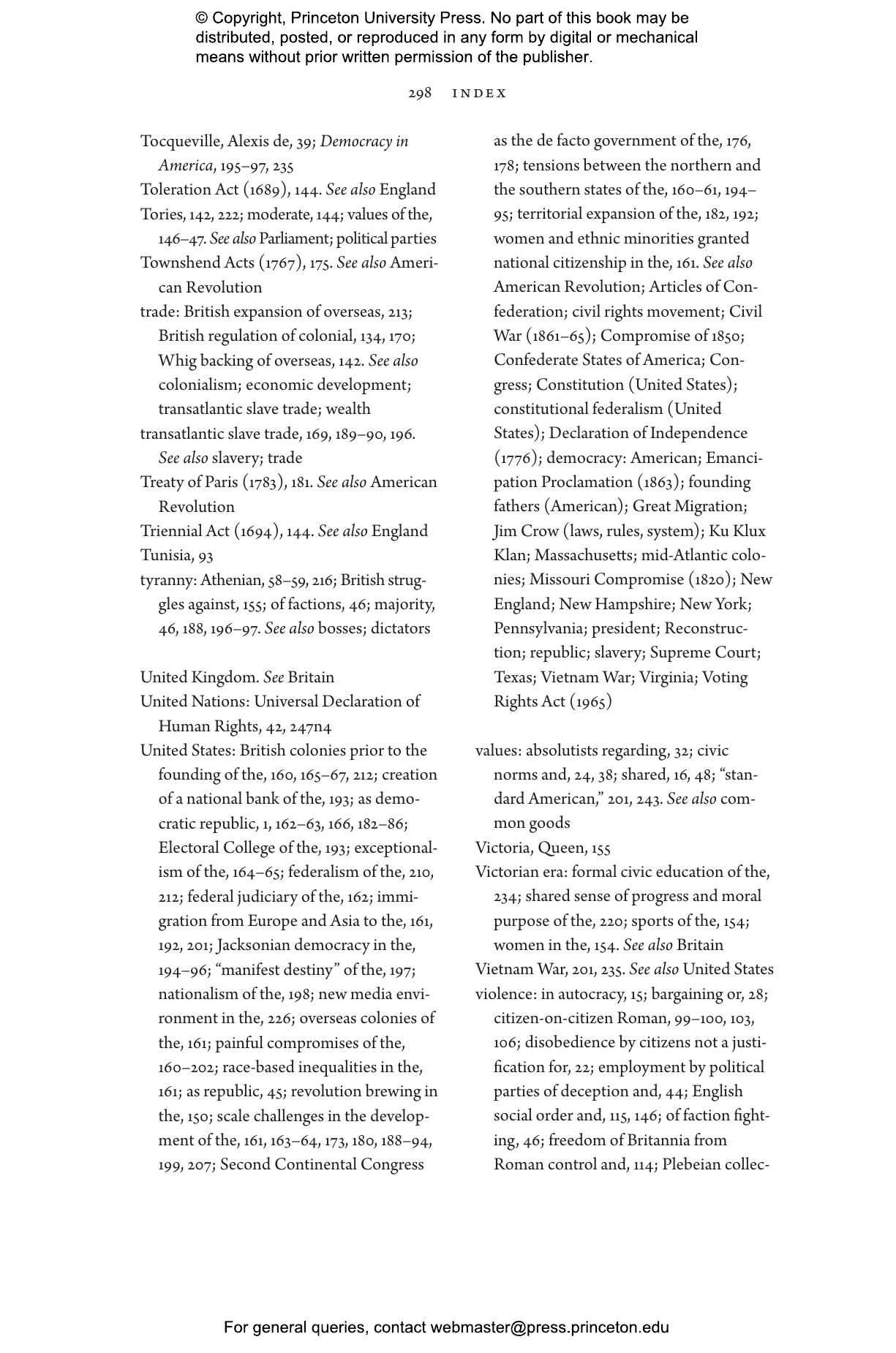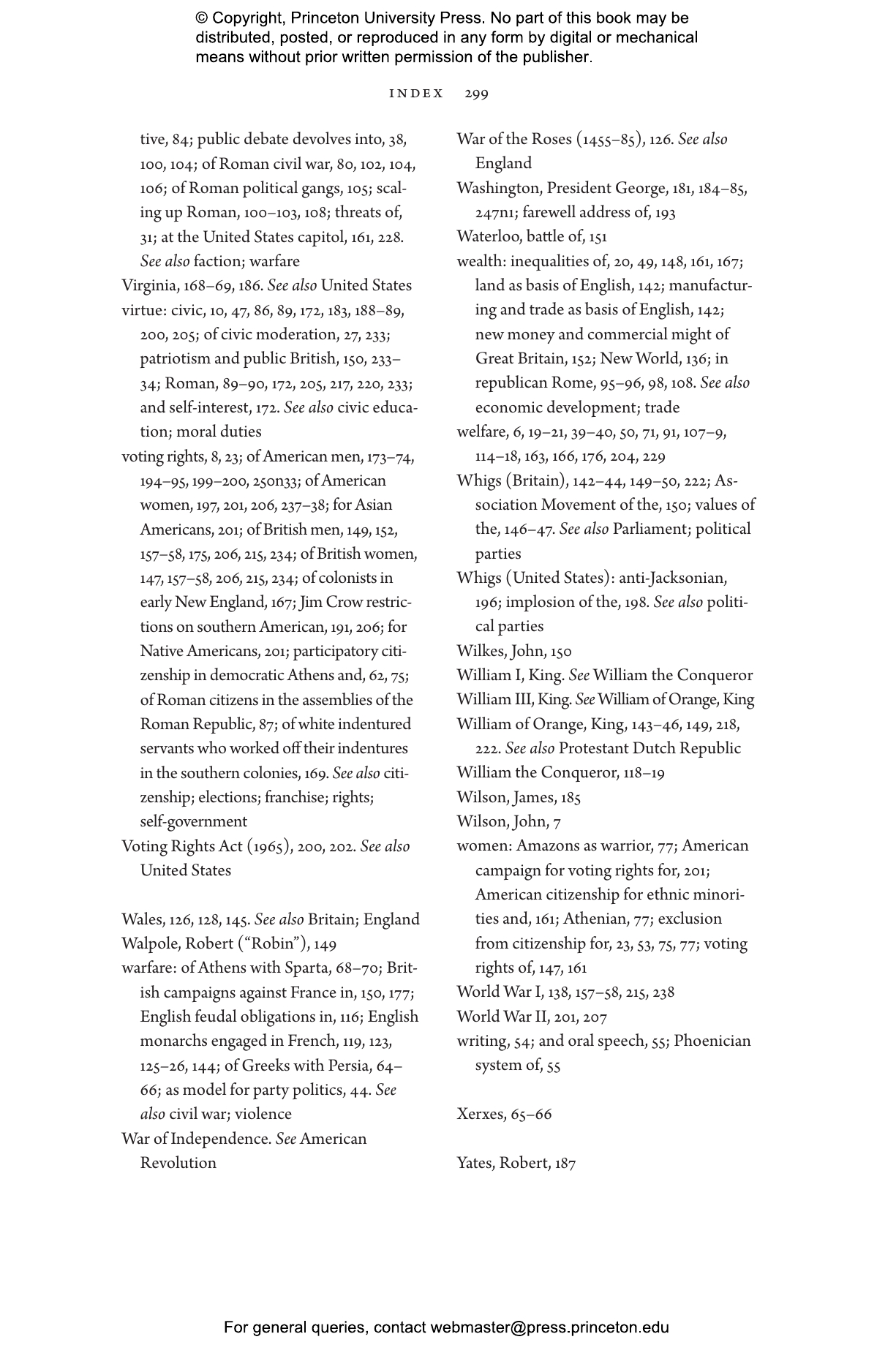Is democracy in trouble, perhaps even dying? Pundits say so, and polls show that most Americans believe that their country’s system of governance is being “tested” or is “under attack.” But is the future of democracy necessarily so dire? In The Civic Bargain, Brook Manville and Josiah Ober push back against the prevailing pessimism about the fate of democracy around the world. Instead of an epitaph for democracy, they offer a guide for democratic renewal, calling on citizens to recommit to a “civic bargain” with one another to guarantee civic rights of freedom, equality, and dignity. That bargain also requires them to fulfill the duties of democratic citizenship: governing themselves with no “boss” except one another, embracing compromise, treating each other as civic friends, and investing in civic education for each rising generation.
Manville and Ober trace the long progression toward self-government through four key moments in democracy’s history: Classical Athens, Republican Rome, Great Britain’s constitutional monarchy, and America’s founding. Comparing what worked and what failed in each case, they draw out lessons for how modern democracies can survive and thrive. Manville and Ober show that democracy isn’t about getting everything we want; it’s about agreeing on a shared framework for pursuing our often conflicting aims. Crucially, citizens need to be able to compromise, and must not treat one another as political enemies. And we must accept imperfection; democracy is never finished but evolves and renews itself continually. As long as the civic bargain is maintained—through deliberation, bargaining, and compromise—democracy will live.
Awards and Recognition
- A New Yorker Best Book We've Read This Year
- Longlisted for the Runciman Award, Anglo-Hellenic League
Brook Manville is an independent consultant who writes about politics, democracy, technology, and business. Previously a partner with McKinsey & Co. and an award-winning professor at Northwestern University, he is the author of The Origins of Citizenship in Ancient Athens (Princeton) and A Company of Citizens: What the World’s First Democracy Teaches Leaders About Creating Great Organizations (with Josiah Ober). Josiah Ober is the Constantine Mitsotakis Professor in the School of Humanities and Sciences at Stanford University and Senior Fellow at the Hoover Institution. He is the author of The Rise and Fall of Classical Greece, Democracy and Knowledge: Innovation and Learning in Classical Athens (both Princeton), The Greeks and the Rational: The Discovery of Practical Reason, and other books.
"Praising the people who agree with you is the easy part of democratic government. The hard part is building a superintending architecture that wins the consent even of those you hate. [Manville and Ober] recognize this truth, and, indeed, build a whole theory of democracy around it. . . . Persuasive."—Adam Gopnik, New Yorker
"Manville and Ober urge defenders of liberal democracy to take the long view. The book provides fascinating portraits of four great breakthroughs in citizen self-rule. . . . [They] argue, the great democracies survived because they forged and maintained a 'civic bargain,' a political pact about who is a citizen, how decisions are made, and the distribution of responsibilities and entitlements."—G. John Ikenberry, Foreign Affairs
"Well-written and insightful. . . a veritable treasure trove for anyone who wants to understand the events leading up to our experiment in self-government, the challenges encountered along the way (human nature being what it is), and the patterns that are most likely to be repeated in the future."—J. Bradford Delong, Project Syndicate
"Even with all that seems discouraging in our own time, Americans should take heart that we the people can make a difference and maintain the continuity of our experiment. . . . Manville and Ober] offer a useful and accessible framework for talking about democracy—in a time when we are all too accustomed to speaking past one another on fundamental matters of civic life."—Hans Zeiger, American Purpose
“The Civic Bargain is a very welcome and original addition for those who want to know something about future prospects for democracy. Brook Manville and Josiah Ober take a deep historical perspective, they establish essential conditions for democracy, and they tell us that it is a process that is never finished. Civic bargains must be struck repeatedly at critical junctures to keep democracy alive.”—David Stasavage, author of The Decline and Rise of Democracy: A Global History from Antiquity to Today
“In The Civic Bargain, democracy is a living system, ever evolving as the political agents shape and reshape the terms of their bargain with one another. Manville and Ober present the interweaving histories of democracy in such a way that one has the sense of galloping through a forest with a guide who knows the wildwood the way he knows his own kitchen.”—Jenna Bednar, University of Michigan
“Looking at the past, present, and future of democracy through the lens of a civic bargain is both helpful and hopeful. Manville and Ober combine a lively history lesson with a practical way forward, lighting a democratic path through the darkness.”—Anne-Marie Slaughter, CEO of New America
“Manville and Ober’s new book offers new, fascinating insights about democracy, both ancient and modern. They update the metaphor of the social contract to that of a ‘civic bargain,’ whose terms are constantly renegotiated by citizens as a condition of their mutual flourishing. A thought-provoking and captivating read.”—Hélène Landemore, author of Open Democracy: Reinventing Popular Rule for the Twenty-First Century
